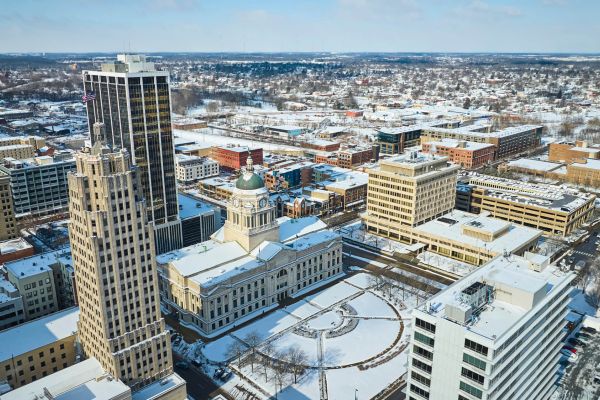Yellowstone in Spring
Day trip guide to hot springs, waterfalls, pools, and geysers
America's first National Park, featuring over 10,000 hydrothermal features, 500 active geysers, and 290 waterfalls, is a MUST for your travel bucket list. It is most popular in summer, as the heat helps reduce the steam over the pools allowing for better visibility. However, it truly is a unique experience to come in spring with warming weather and snow all around. Let me give you some tips for a day trip in Yellowstone to help you make the most of your adventure!
*If your attention span is like MINE, you can instead watch this short 60 second video on my Tiktok that summarizes this trip.
After doing some extensive research, as well as talking to the local park rangers (something I would describe as mandatory for all national parks to get updates on current situations and recommendations), I am going to break down this trip into three parts:
Note that since I was here in late spring, not everything in the park is open. A lot of the roads were closed due to snow through winter and don’t reopen until May or so. I was here in late April, which had the west and north entrances open. As far as lodging, you can either lodge inside the park, or at the towns just outside the west or north entrances. I opted for West Yellowstone and found a fun and unique hotel called Gray Wolf Inn & Suites, styled heavily with wolves all around!
The west entrance does put you closer to the main waterfalls and the pools / geysers. The main reason to lodge at the north would be if you want the quickest access to the Mammoth Hot Springs as they are right up there. Lodging in the park at Canyon Village puts you RIGHT up next to the iconic falls, leaving you about equidistant from the hot springs and the pools / geysers.
I will say at this point I do want to make another trip to Yellowstone in summer, as that is a much better time to view the pools and geysers. They get very steamy and have low visibility in colder weather, as the cold air and super hot springs produce a lot of steam. The warmer the better; the rangers told me closer to 80 degrees or warmer starts to clear up the steam a lot more.
UPDATE - Be sure to check current conditions and the latest news in Yellowstone, given the recent flooding in 2022 that has caused many roads to be inaccessible.
On a side note, this is just one of many stops I took during my Great Western American Road Trip. You can learn more about that full trip here for tips on other iconic parks like Death Valley, Redwoods, and Yellowstone:
Read about that amazing journey
Alright, enough pre-chit-chat (if that makes sense). Let’s dive into these three different and unique “biomes” of Yellowstone.
1. Mammoth Hot Springs
You can’t go wrong by visiting these iconic terraced hot springs near the north entrance of the park. I would suggest giving yourself 1-2 hours of your day walking along the boardwalk trail that loops through and around a variety of hot springs. They are not particularly steamy in winter and so it is one of the spots this time of year that gives great clarity to water and formations.
This part of the park also opens up your view very nicely to the mountains all around you, as the rest of the park is in a flatter area and the trees block your visibility.
Difficulty - 4/10 - The entire path is on a wood boardwalk. I give it this score because there are a good amount of stairs, as this entire region is on a slope.
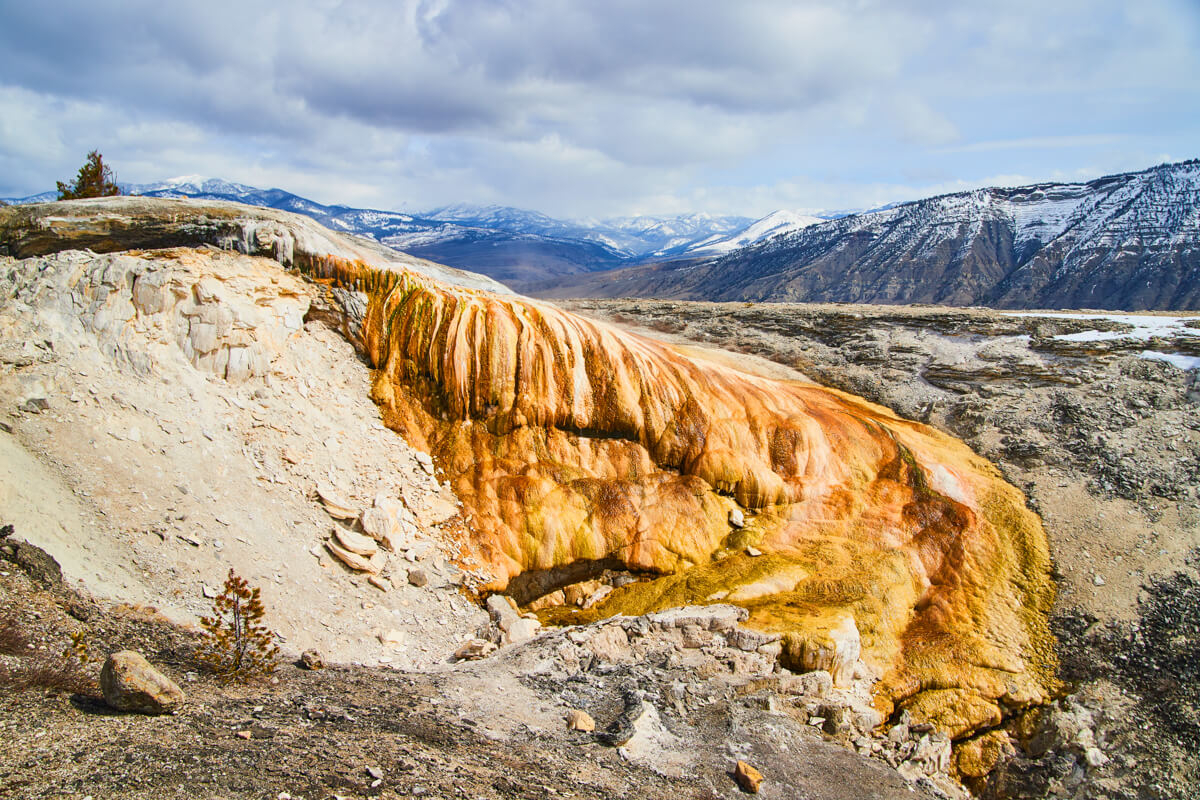
On path to main springs
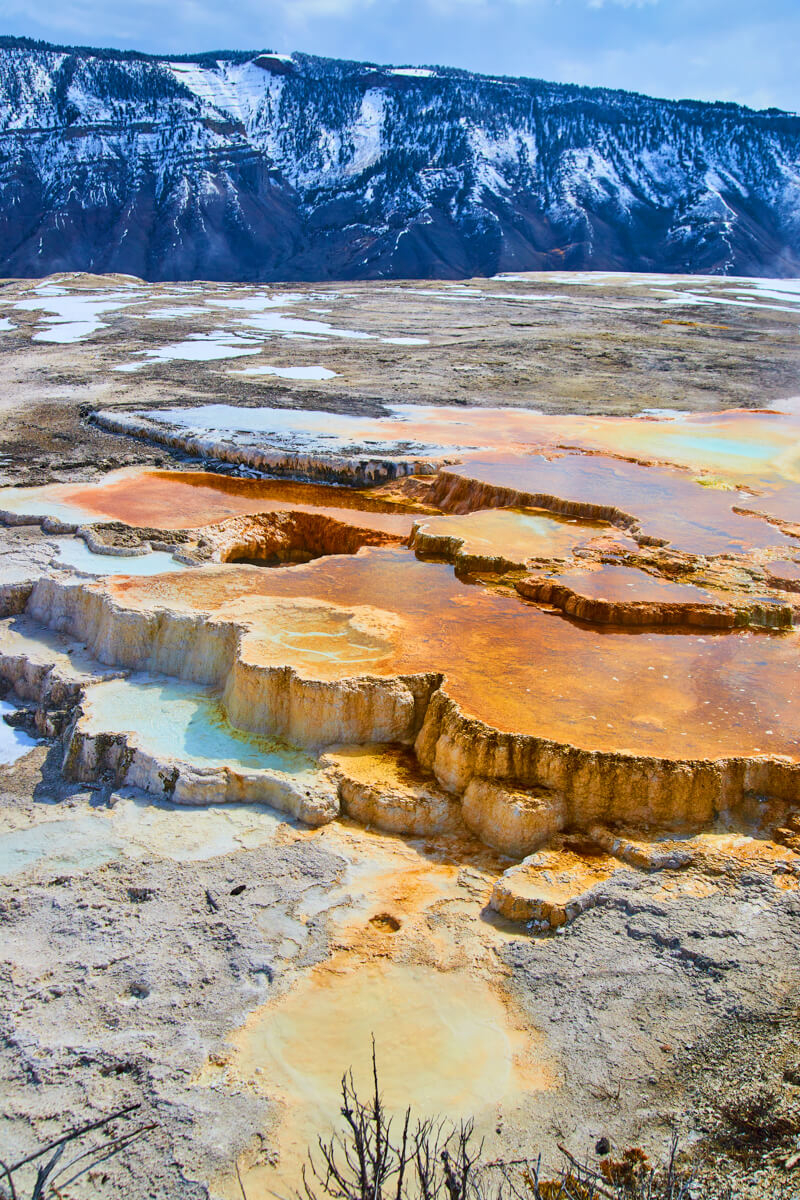
Terraces along the way
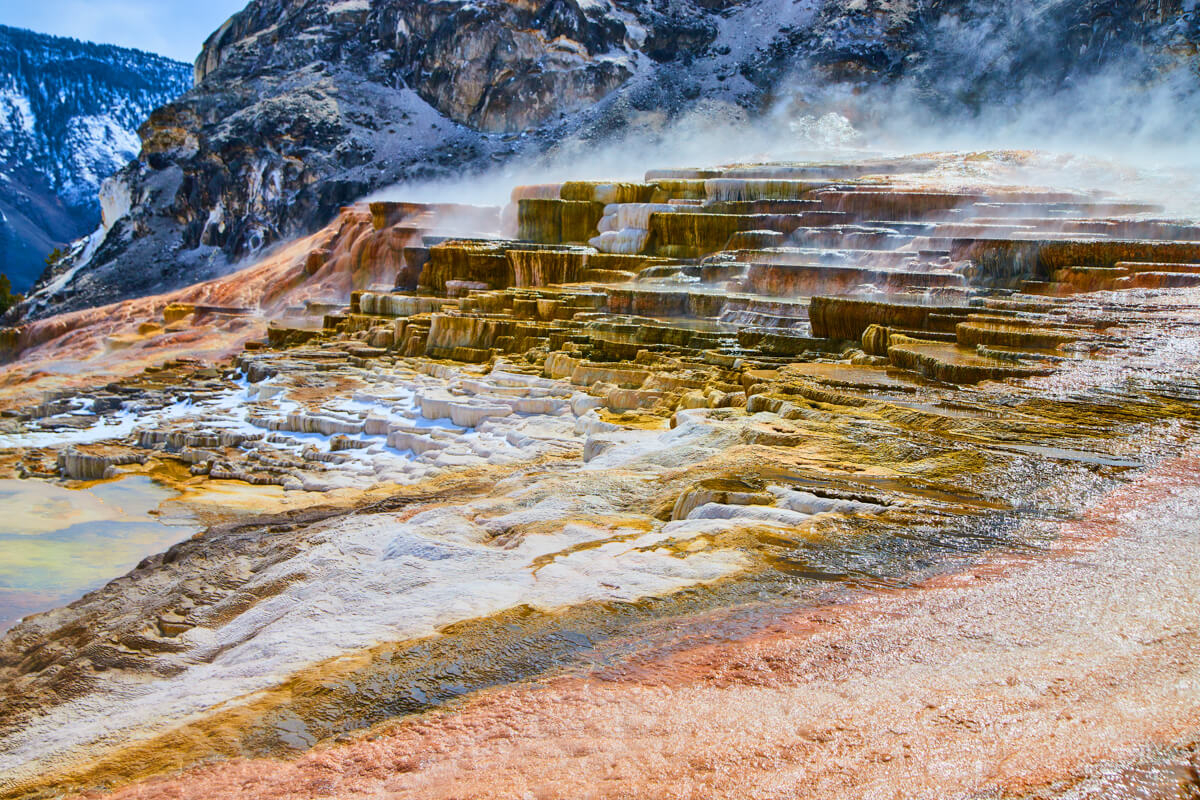
Large terraces with steam
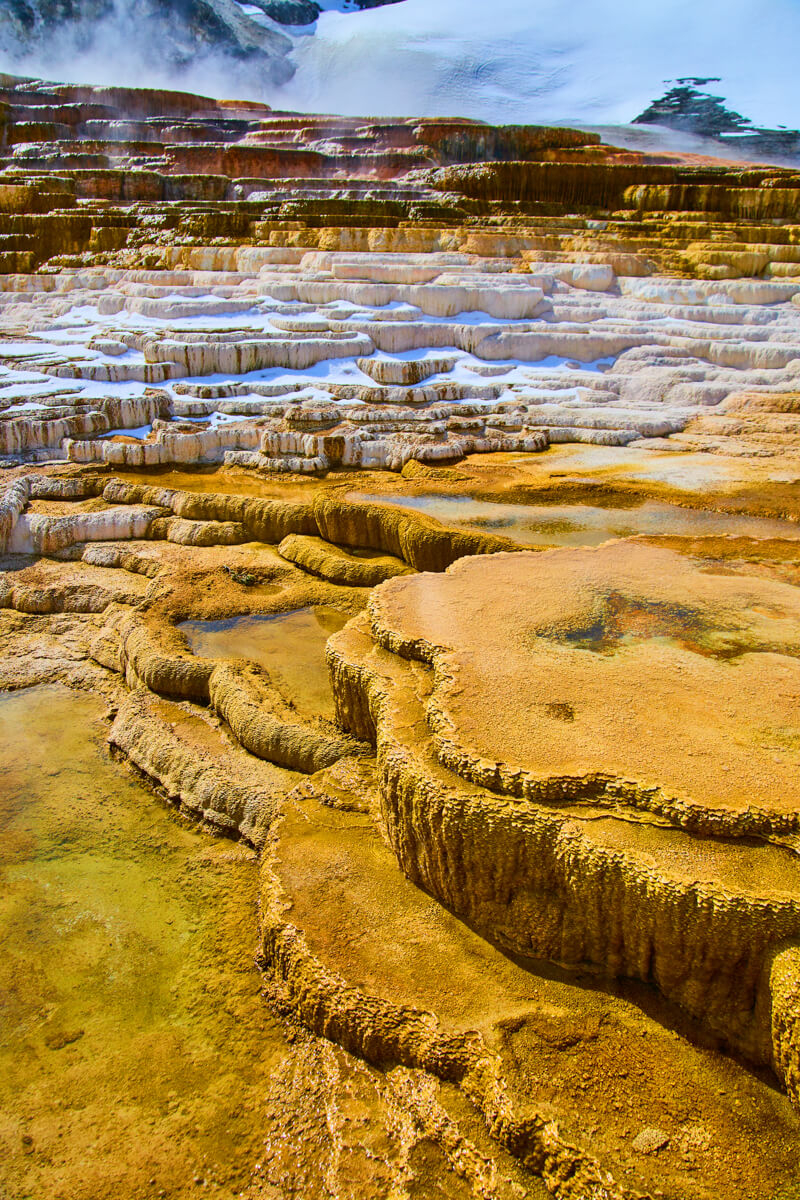
Colorful variety of terraces
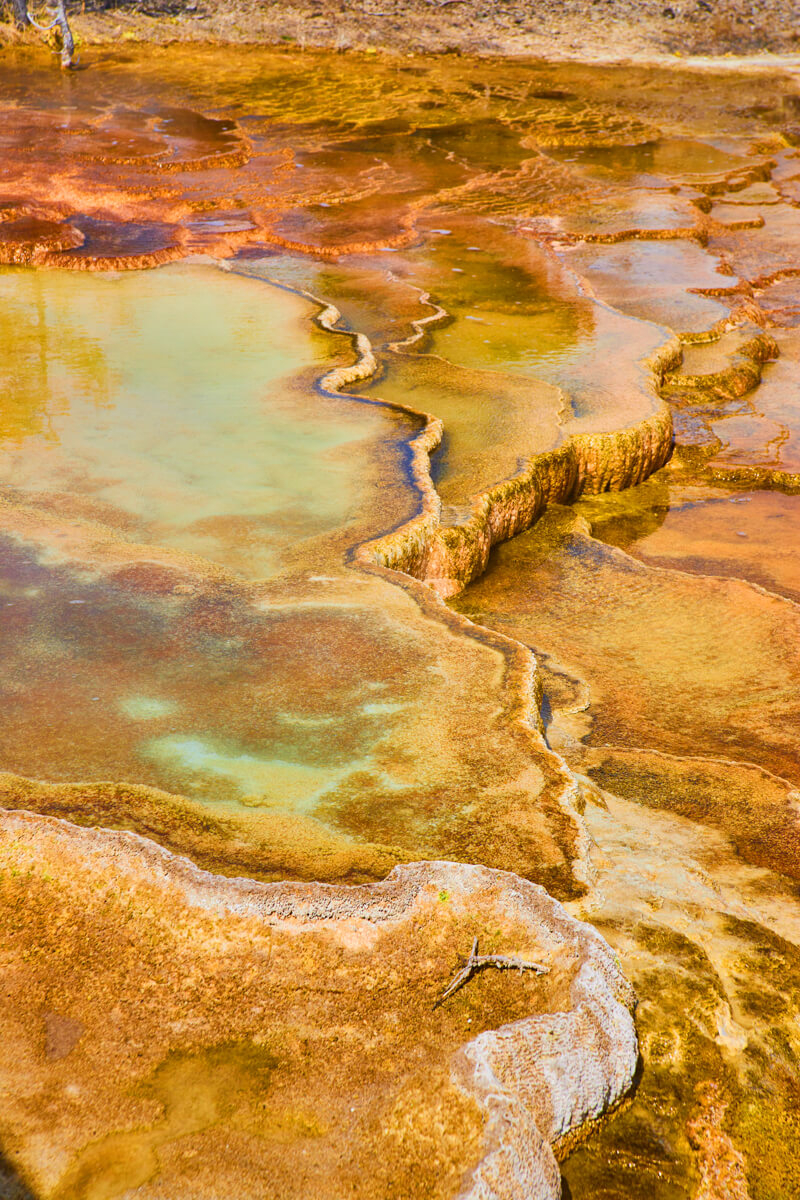
Detail of terraces and pools from above
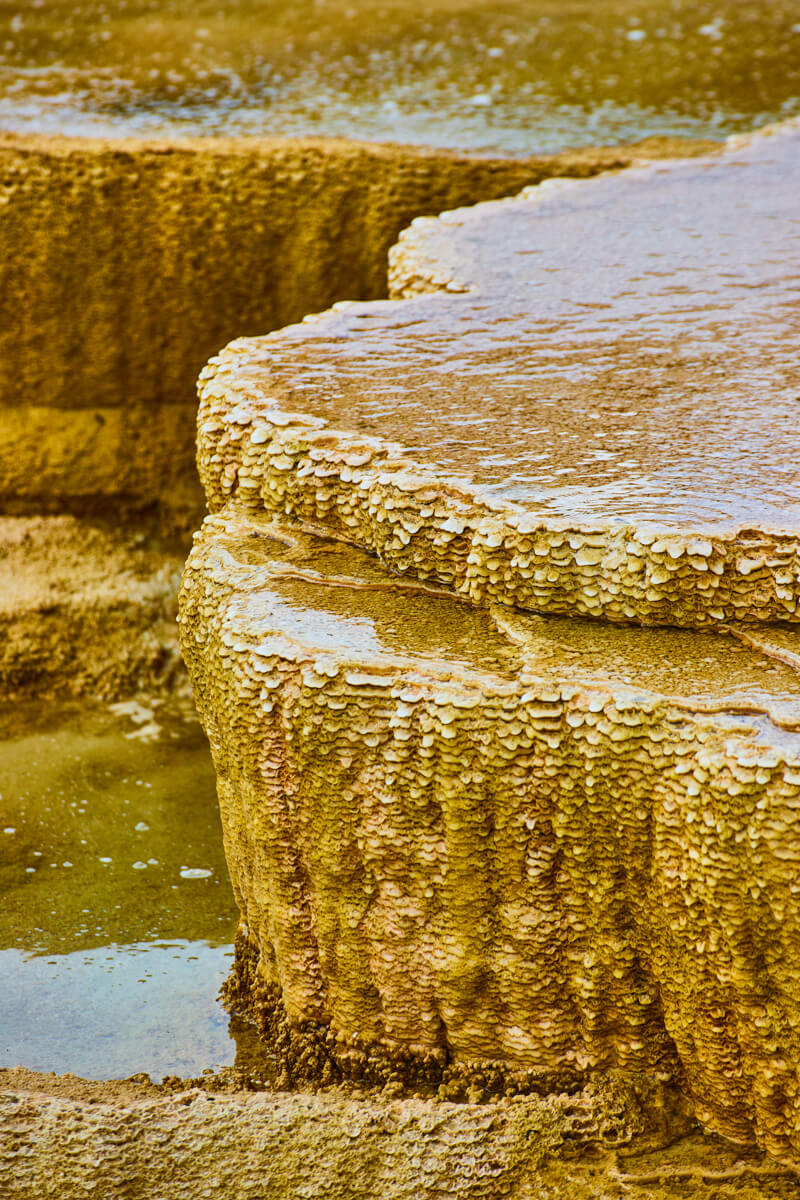
Detail of terrace formations
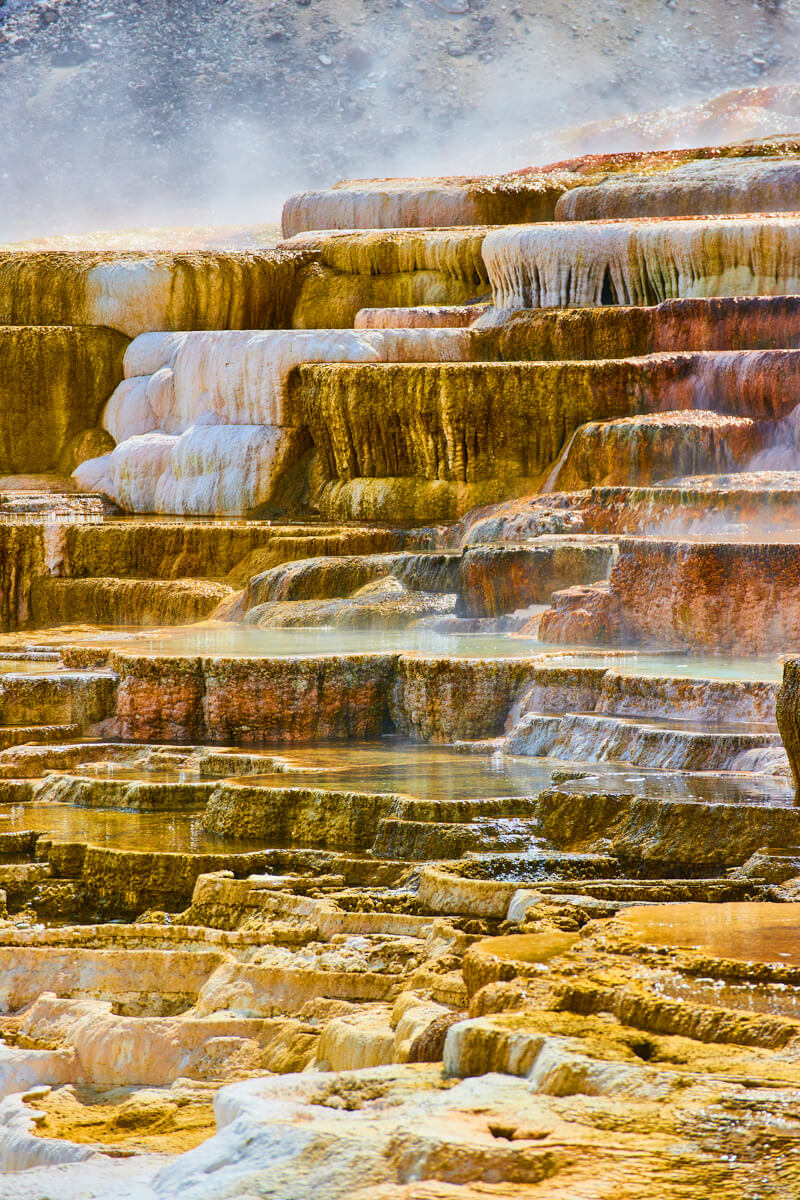
Endless terraces
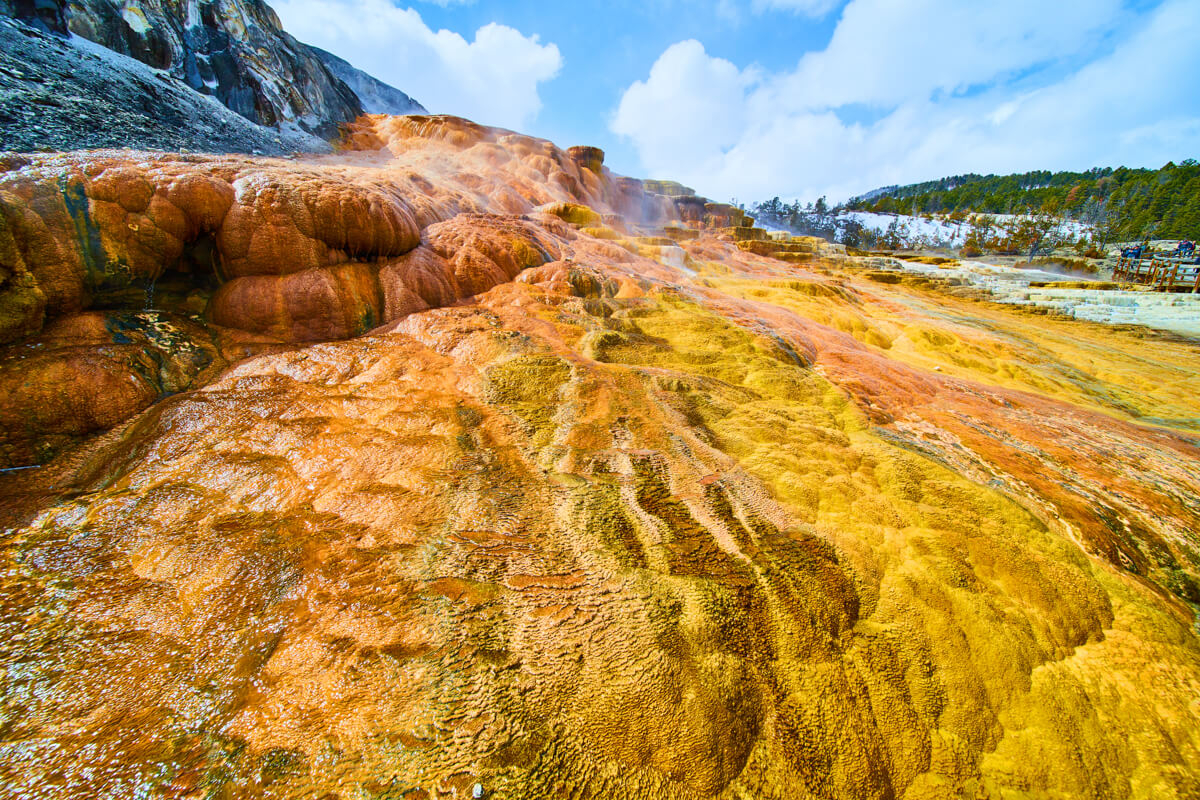
Colorful slope from terraces
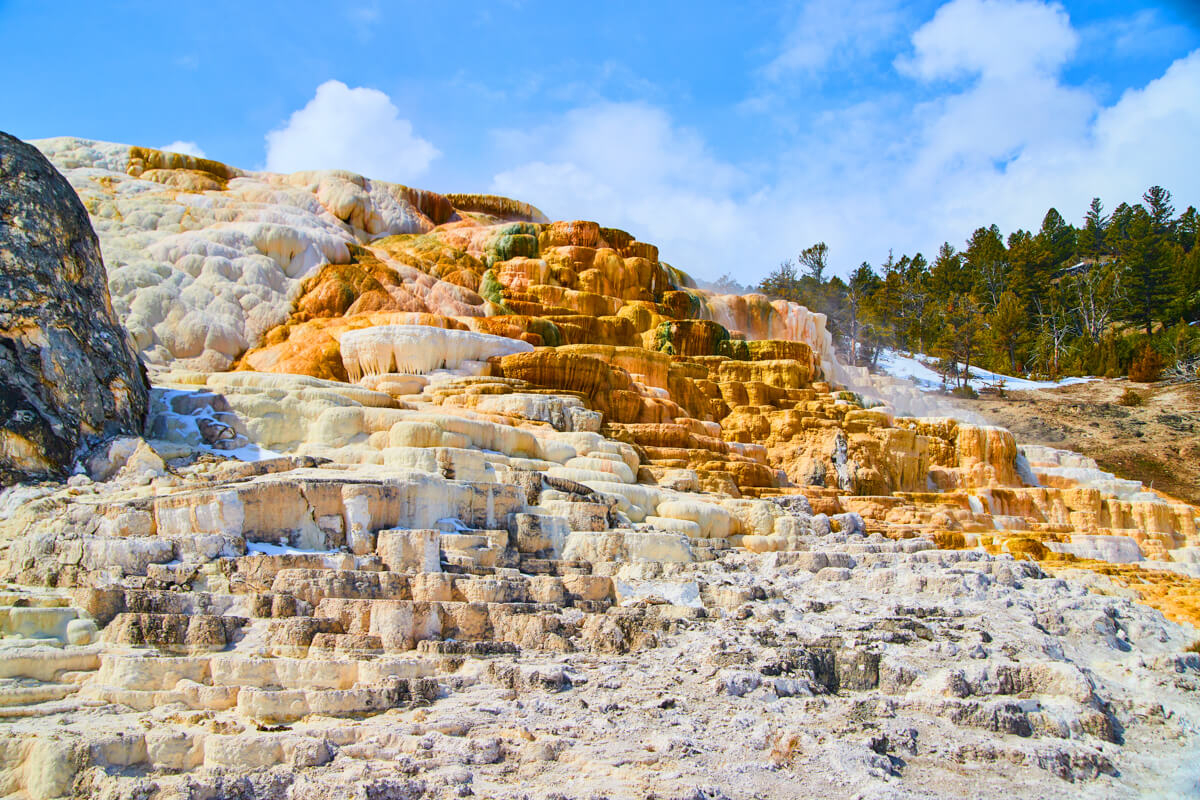
Stunning terraces in early spring
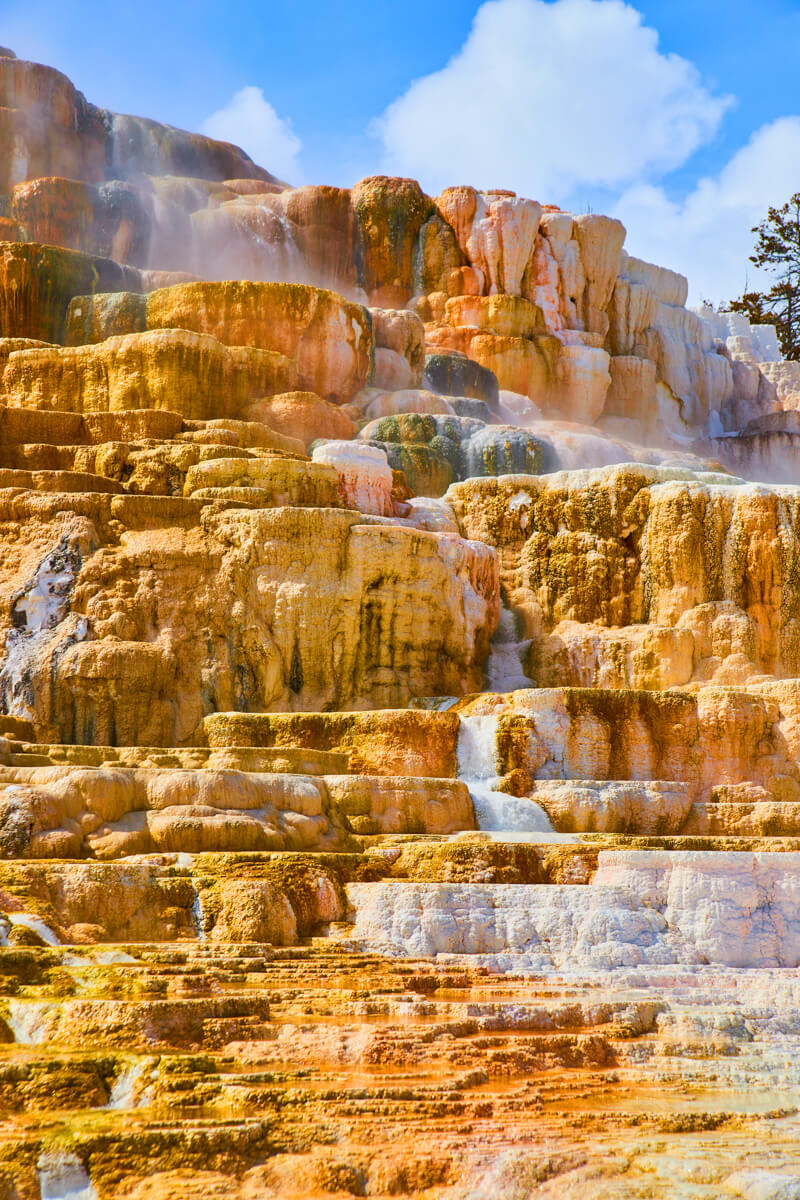
Small waterfall trickling through terraces
2. Waterfalls
The iconic waterfalls are, of course, the Upper and Lower Falls. Both are in a valley that they describe as “The Grand Canyon of Yellowstone”. There are a number of different overlooks to enjoy the waterfalls from, so take your pick and enjoy a few of them as they are all pretty close together and have very short walks.
The Lower Falls is a smaller waterfall tucked away that I found to be absolutely stunning in winter. The Upper Falls is the big boy and the overlooks have you looking at it through the huge canyon (where I found a zoom lens to be particularly helpful). Last, I took a peak at Gibbon Falls, a smaller cascading fall that is easy to get to from the overlook and worth taking a pause at.
You can easily spend 1-2 hours in this region.
Difficulty - 2/10 - I found this area of the park to have the least amount of walking. Nearly all of the overlooks in my images were a short 1-2 minute walk on a paved path. Keep in mind there are, of course, plenty of hiking trails that are more intense and go deeper in. However, many of them were closed at this time of year due to the snow.
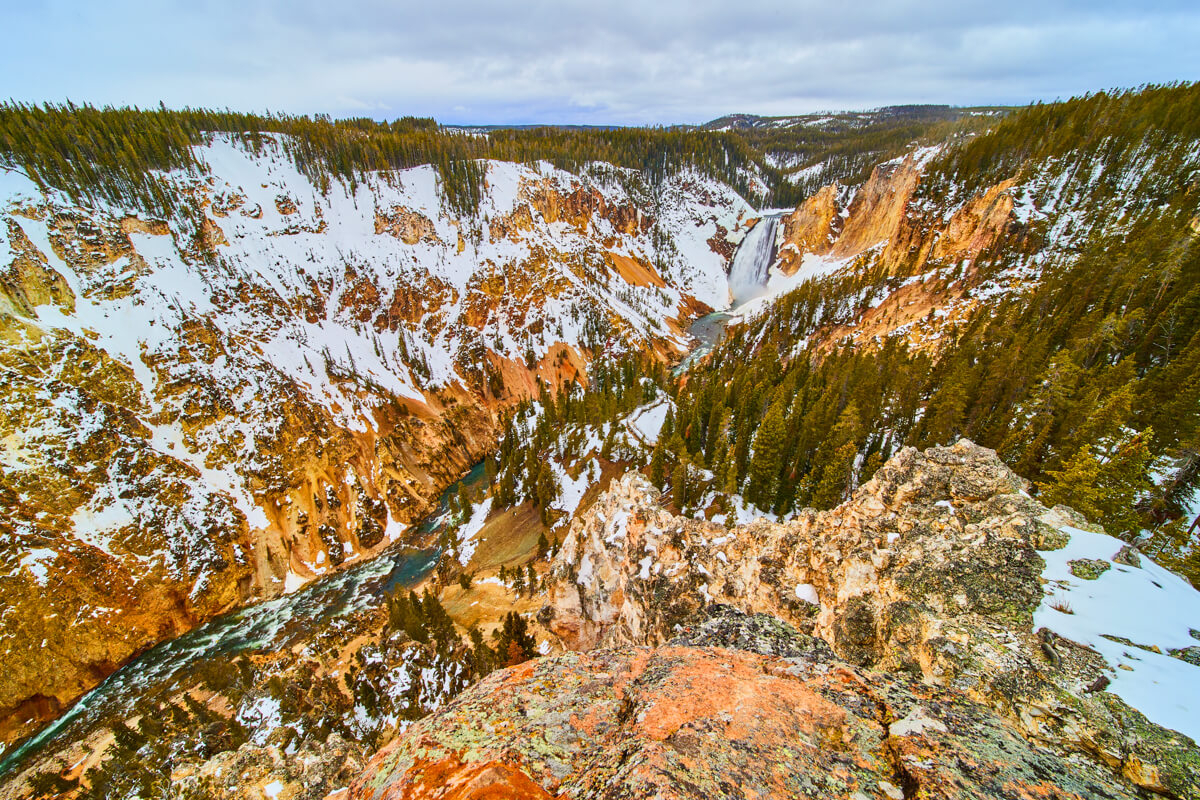
View of "Grand Canyon of Yellowstone" and Upper Falls
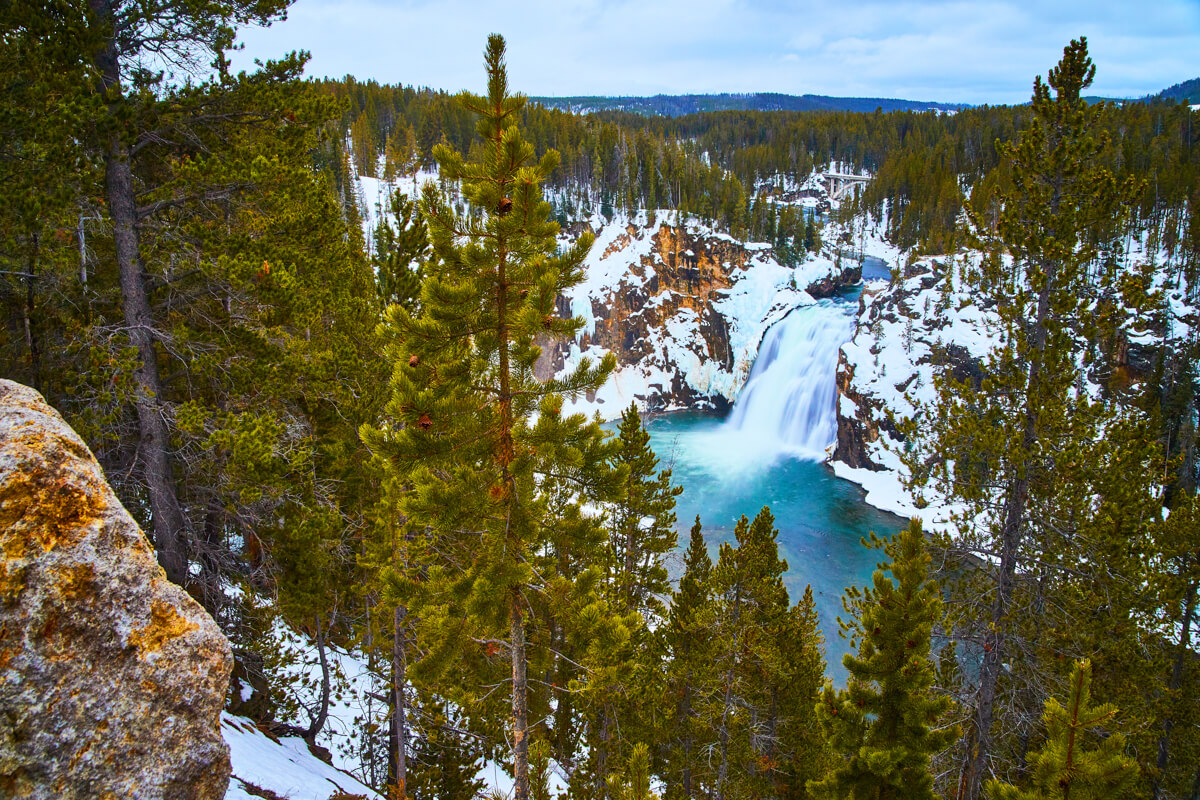
Stunning Lower Falls with snow
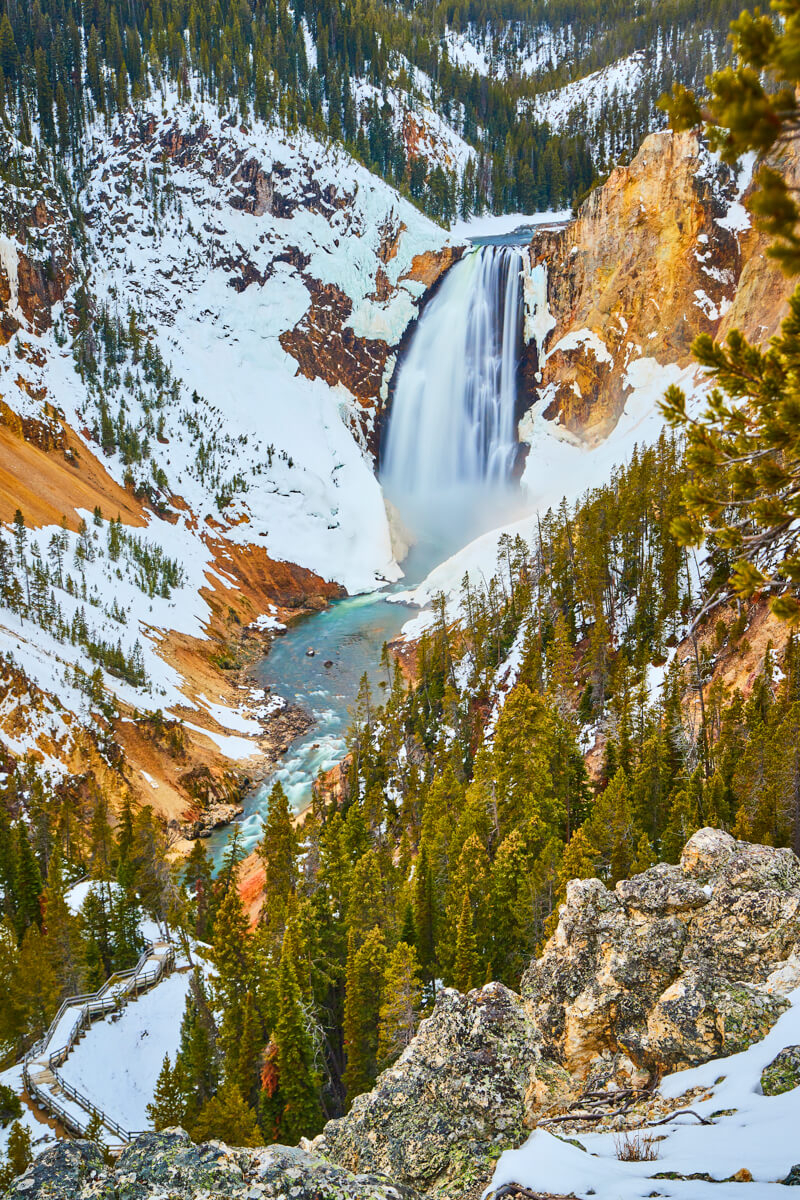
Zoom on Upper Falls
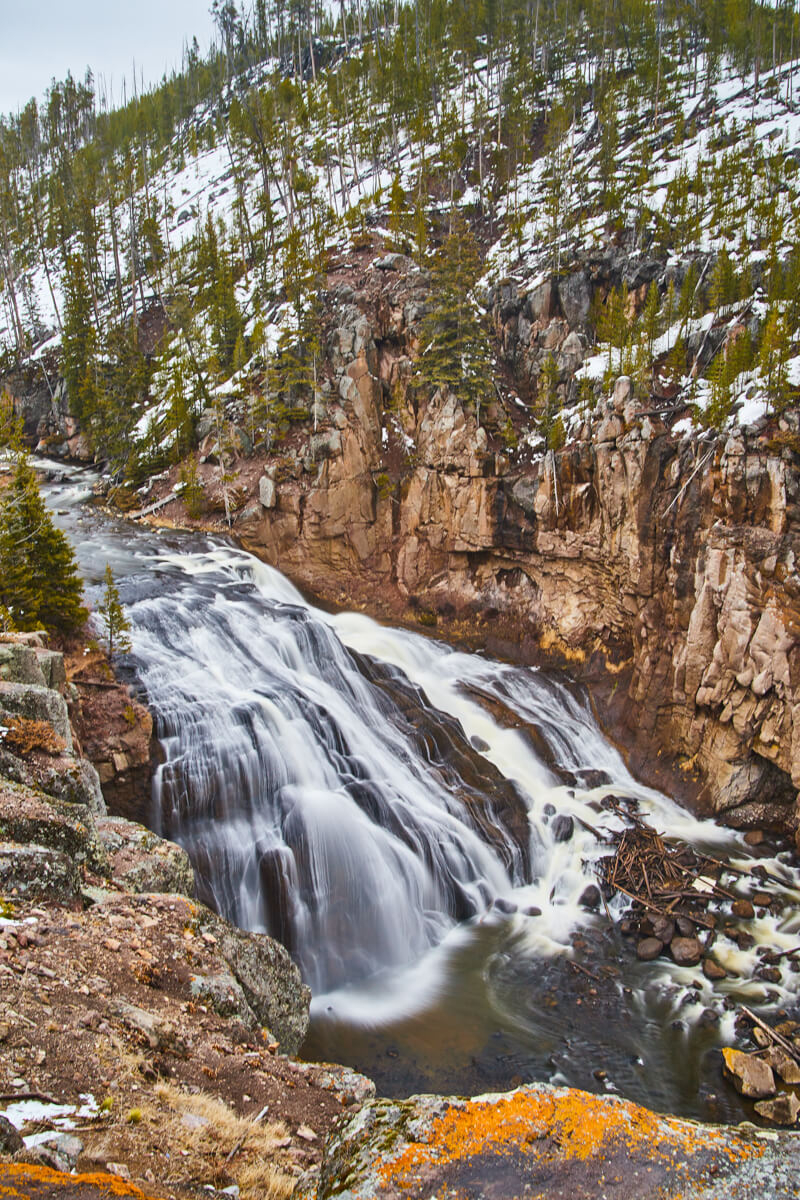
Gibbon Falls
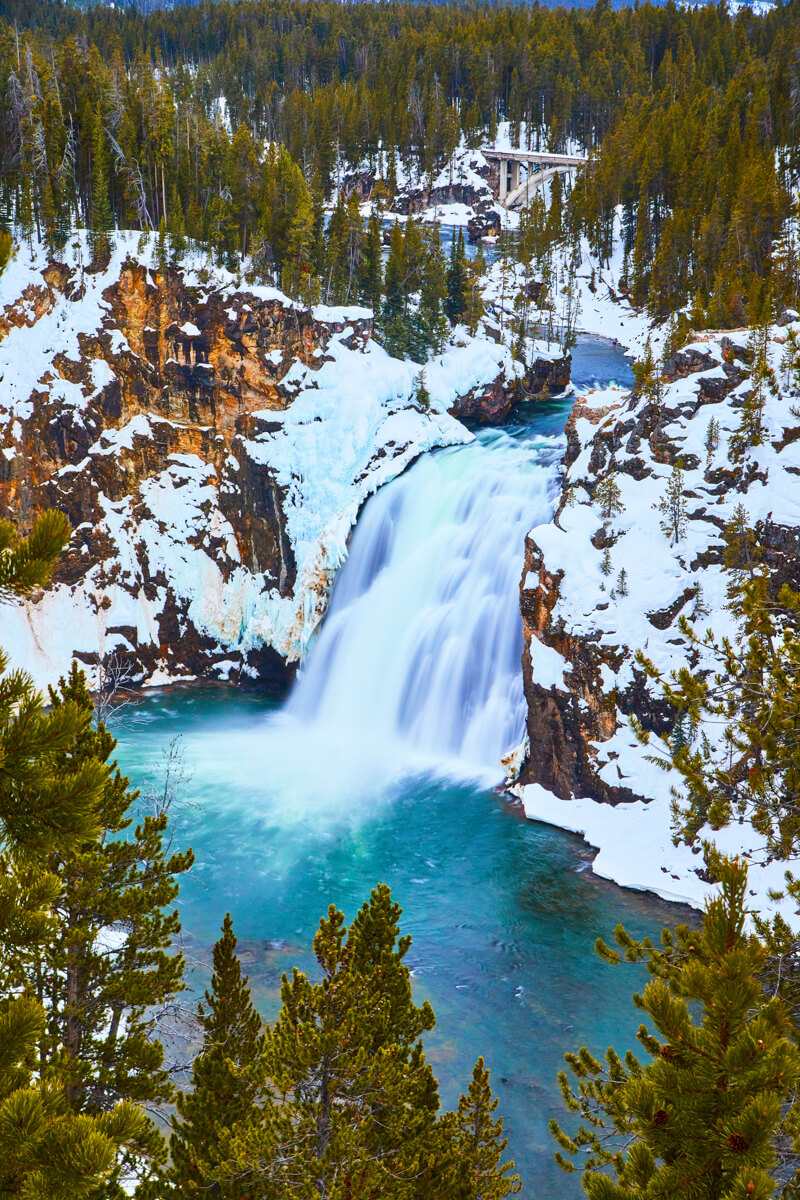
Vertical of Lower Falls with bridge
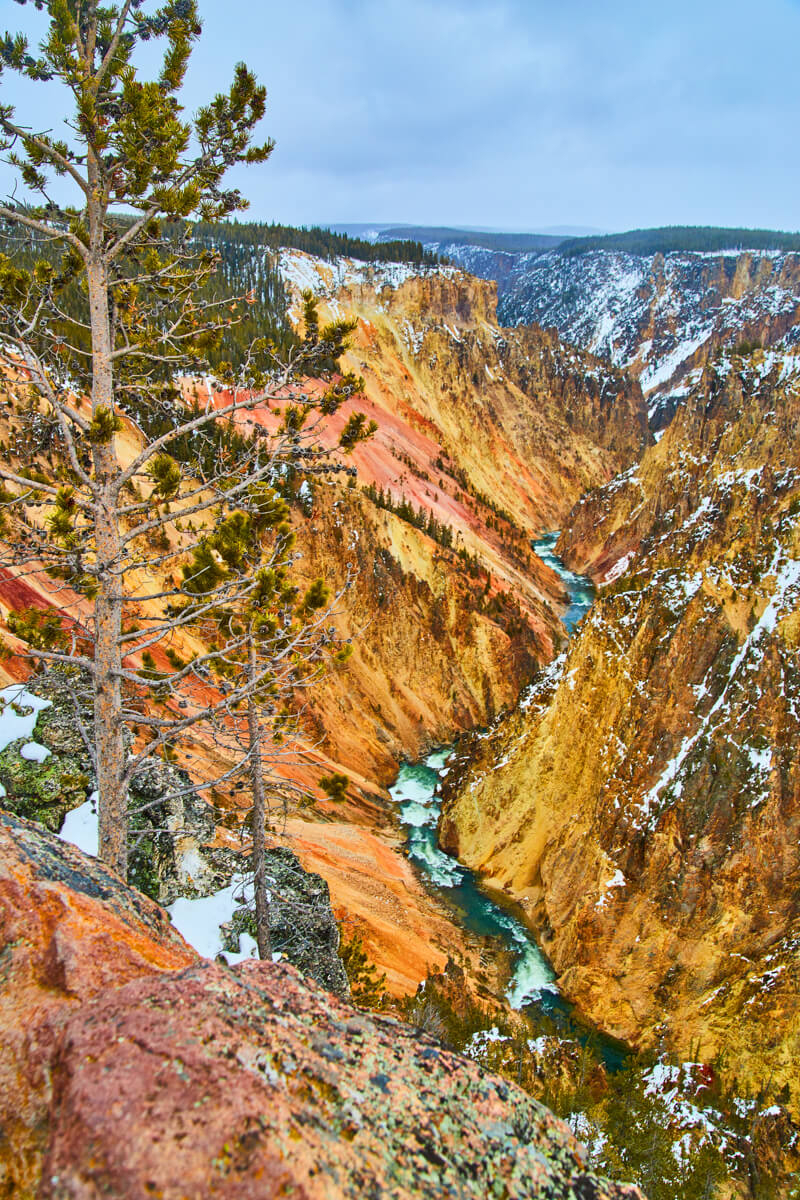
Looking down the opposite way of Upper Falls
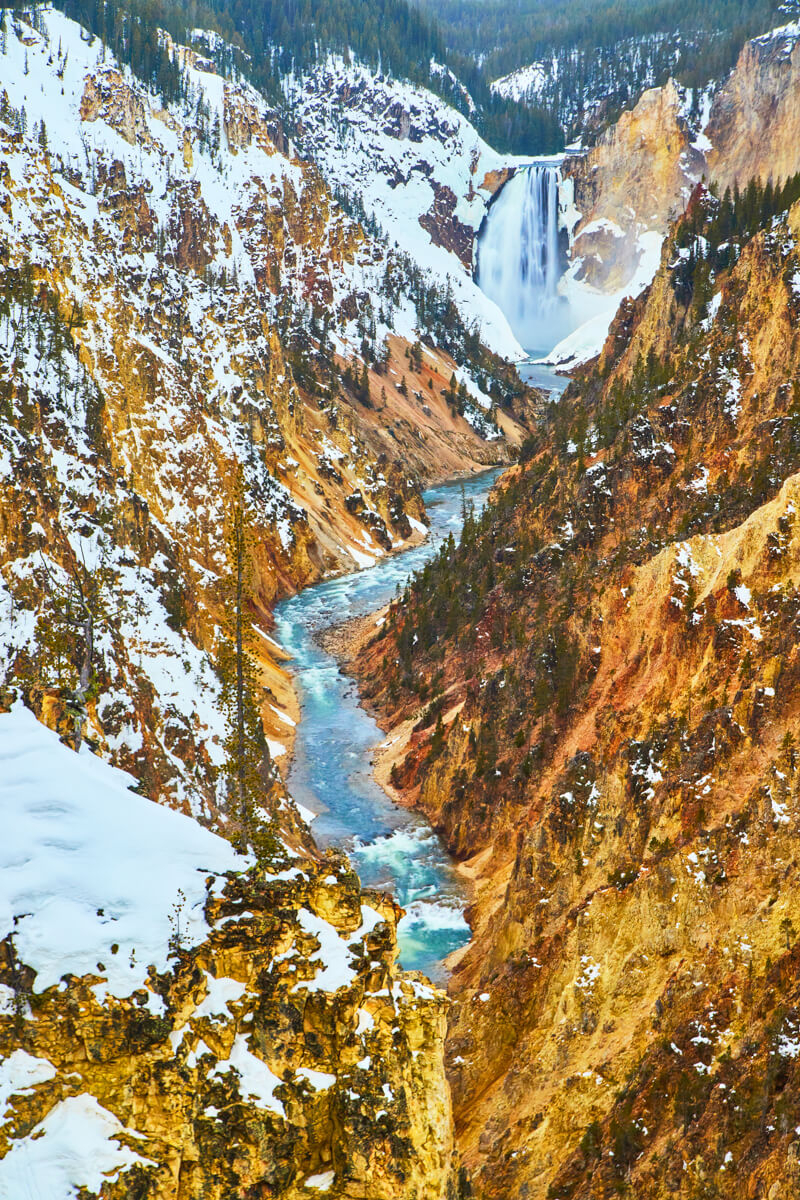
Medium zoom on Upper Falls
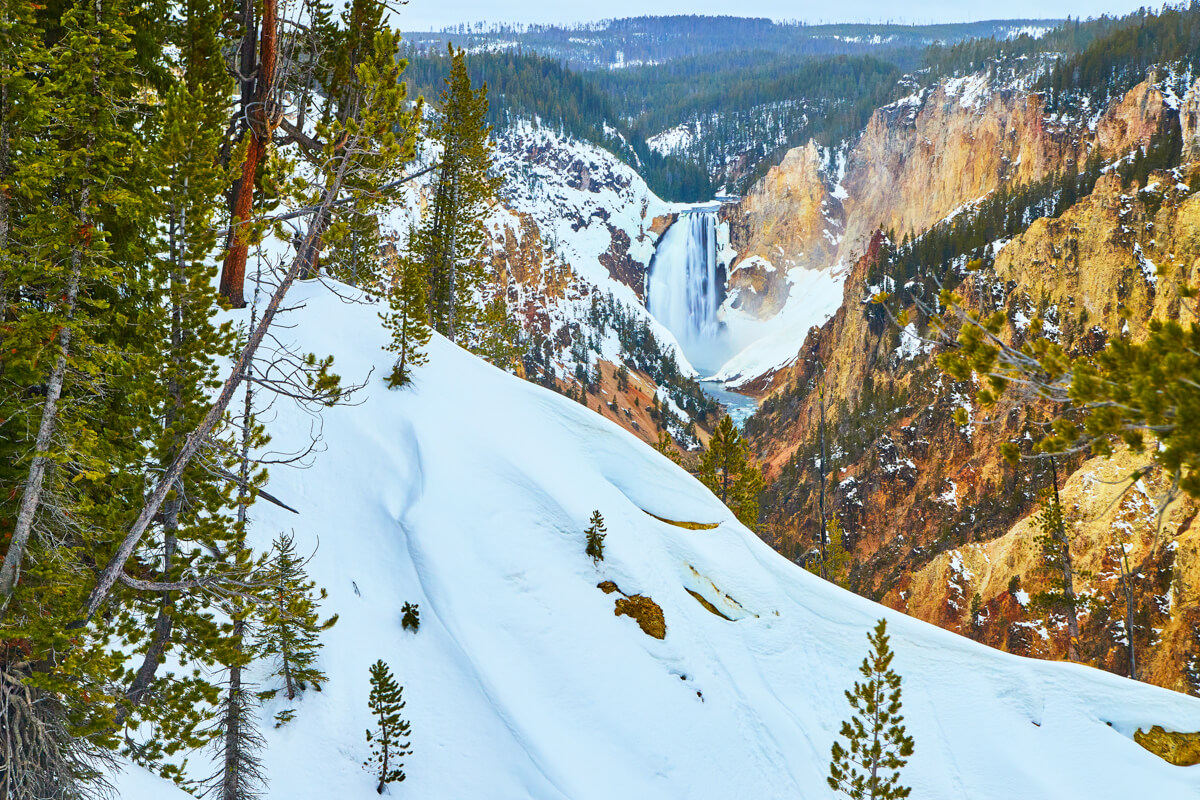
Upper Falls from other side of canyon
3. Pools and Geysers
This is where I found most of my time going as “pools and geysers” is a pretty broad region and they can be found ALL over the park. However, I started down at Old Faithful and worked my way through a few of the most popular trails that take you along a variety of pools and geysers. Some favorites included Miscuit Basin, the largest and most iconic Grand Prismatic Spring, and Norris Basin.
Again, keep in mind that this time of year has many regions closed off from snow. Check with the local rangers to get tips on what IS open and from that list what THEY recommend based on what you are interested in seeing.
Is Old Faithful worth it? Hot take - not in my opinion at LEAST not this time of year. I went, I waited, it was pretty much on schedule. It was…boring. But, that is due to how much steam there is and the gloomy time of day. It was just a bunch of white steam against a white sky and didn’t really do much for me.
Honestly, the most beautiful pools during this time of year I found were the smaller ones, as they had less steam and you could really enjoy their vibrant colors of blues and oranges.
I would recommend giving yourself 3-5 hours of your day exploring the variety of locations in this “biome”, as this is where you will do most of your walking and driving to reach different spots.
Difficulty - 3/10 - Overall it is a lot of walking, but nearly all of it is on flat terrain and ALL of it is on a paved path or wooden boardwalk. Only one area, the path to Grand Prismatic Spring, was a bit stepper and had a zig-zagging ramp to get up to the spring.
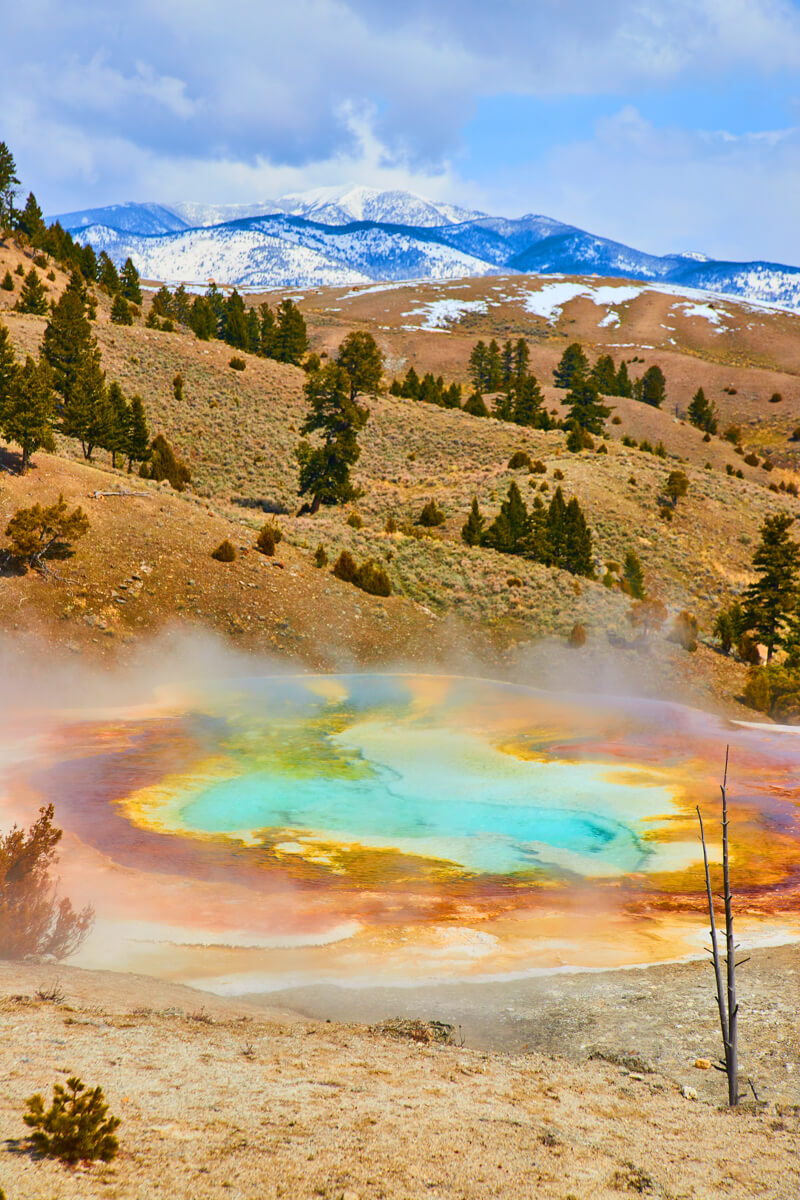
Pools at Mammoth Hot Springs
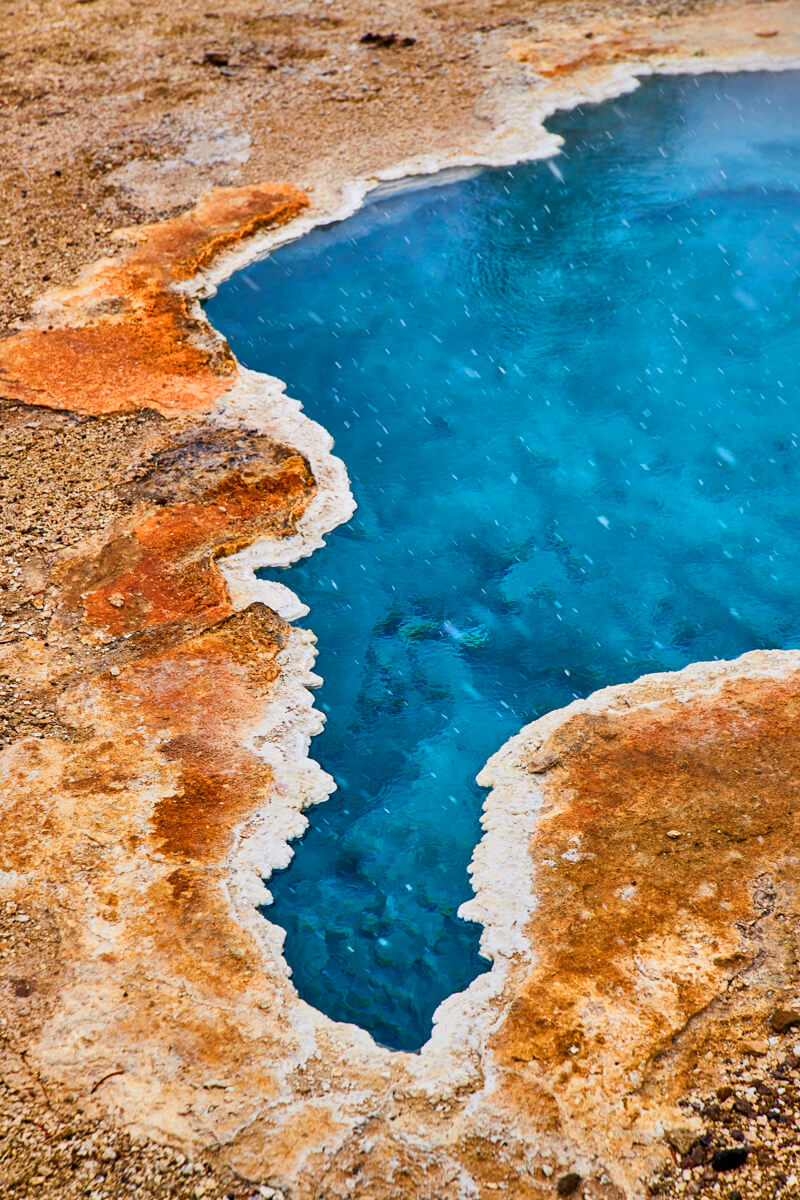
Blue Star Spring by Old Faithful
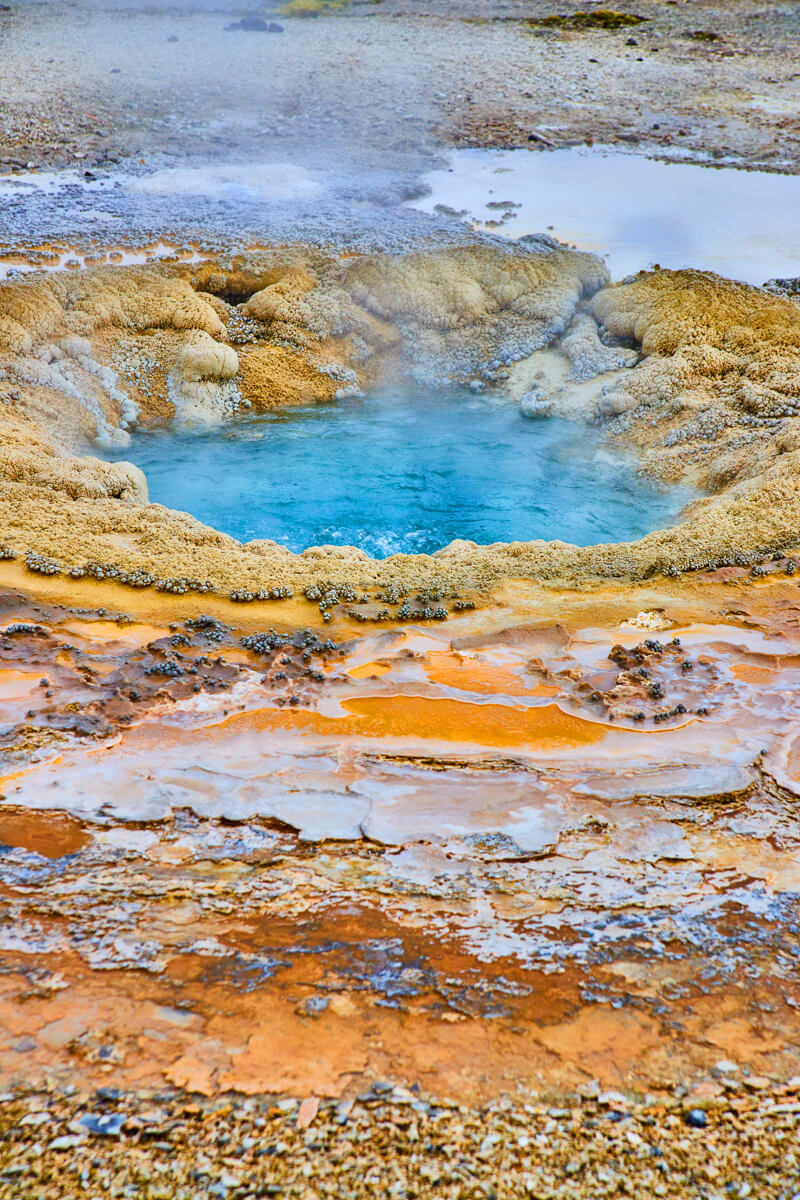
Layers of sediment around pools at Biscuit Basin
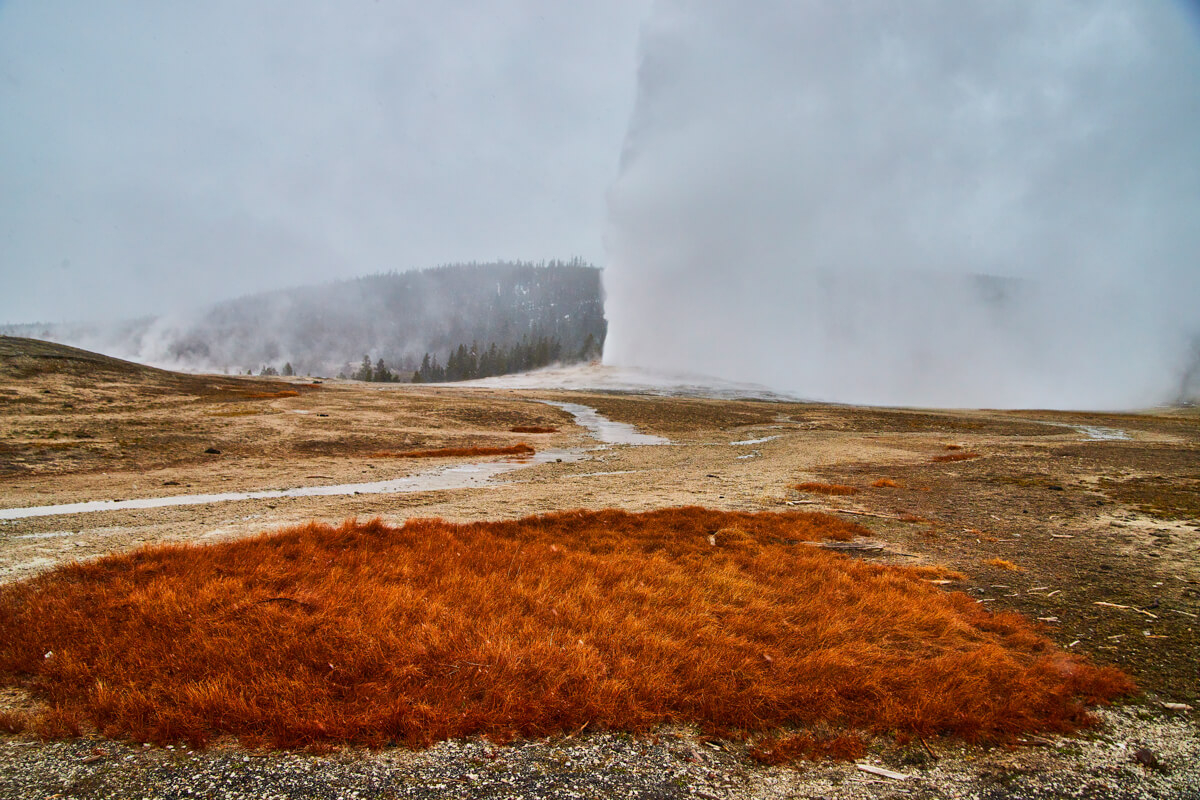
Old Faithful on cloudy morning
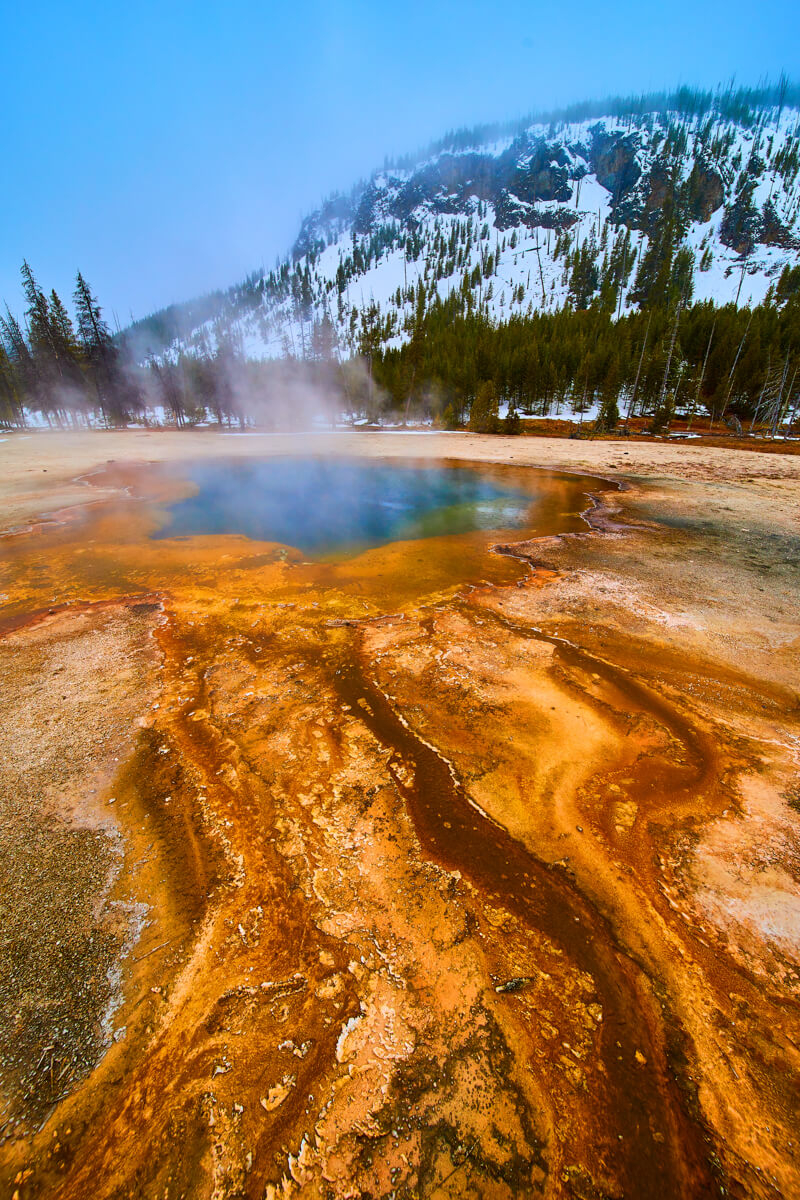
Emerald Pool at Biscuit Basin
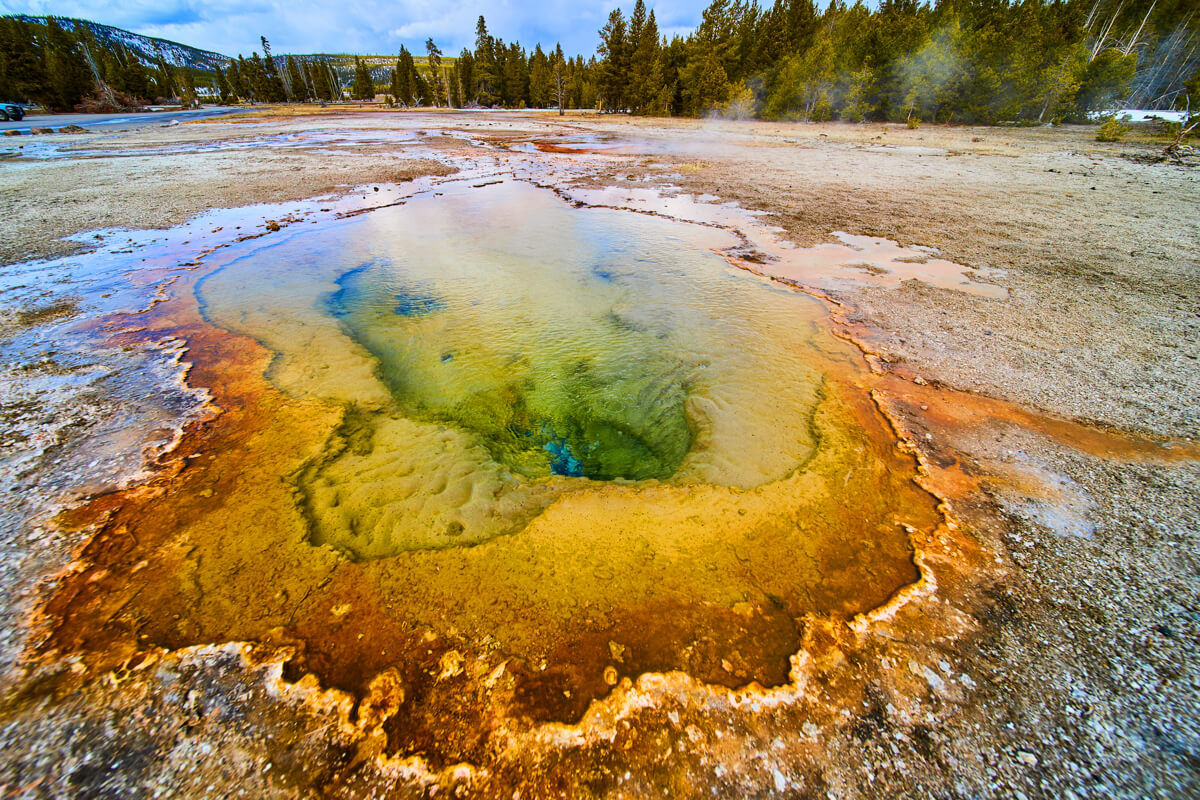
Vulnerable Spring - a roadside pool by Biscuit Basin parking lot
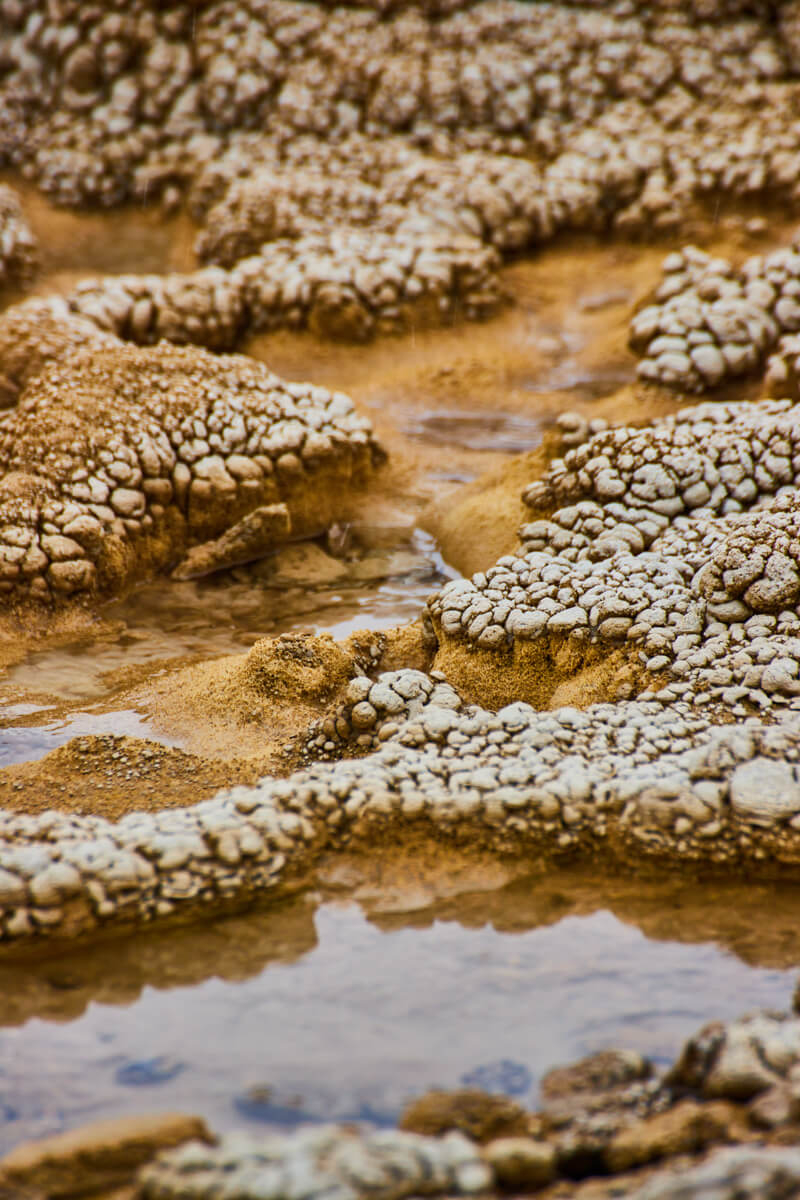
Detail of spring at Biscuit Basin
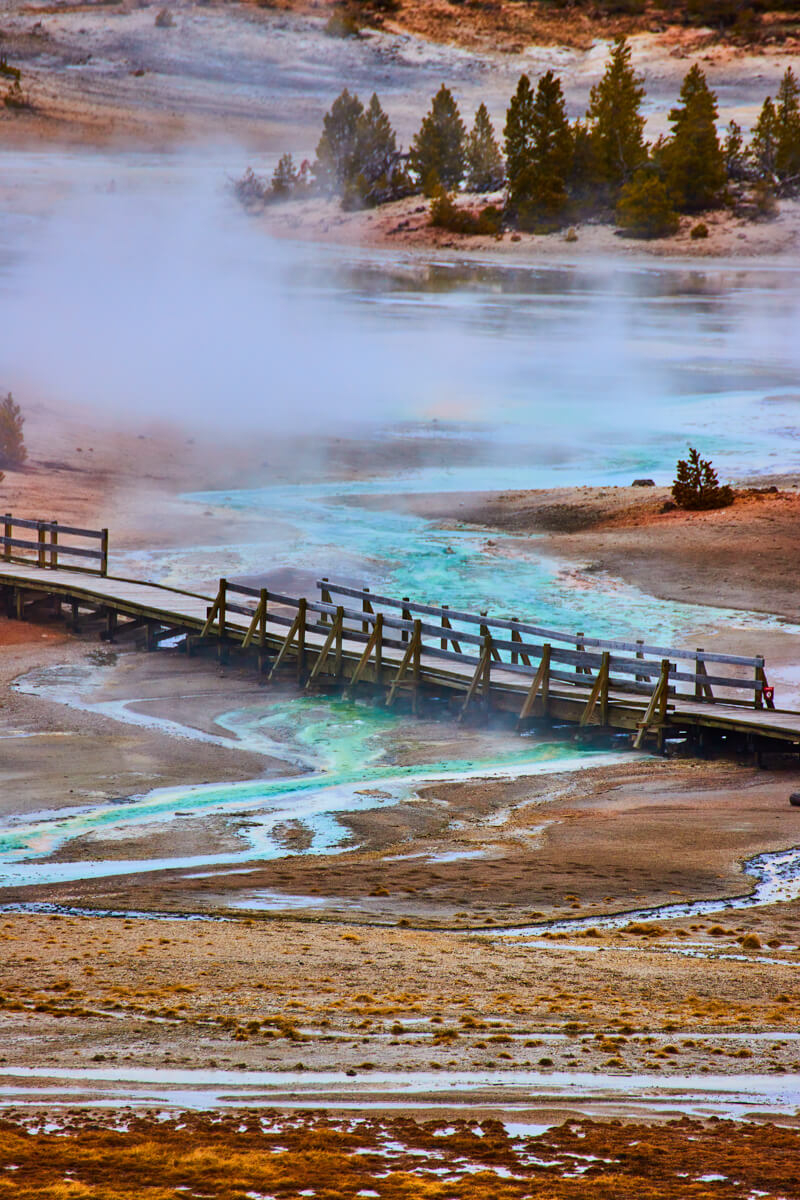
Overlook at Norris Basin
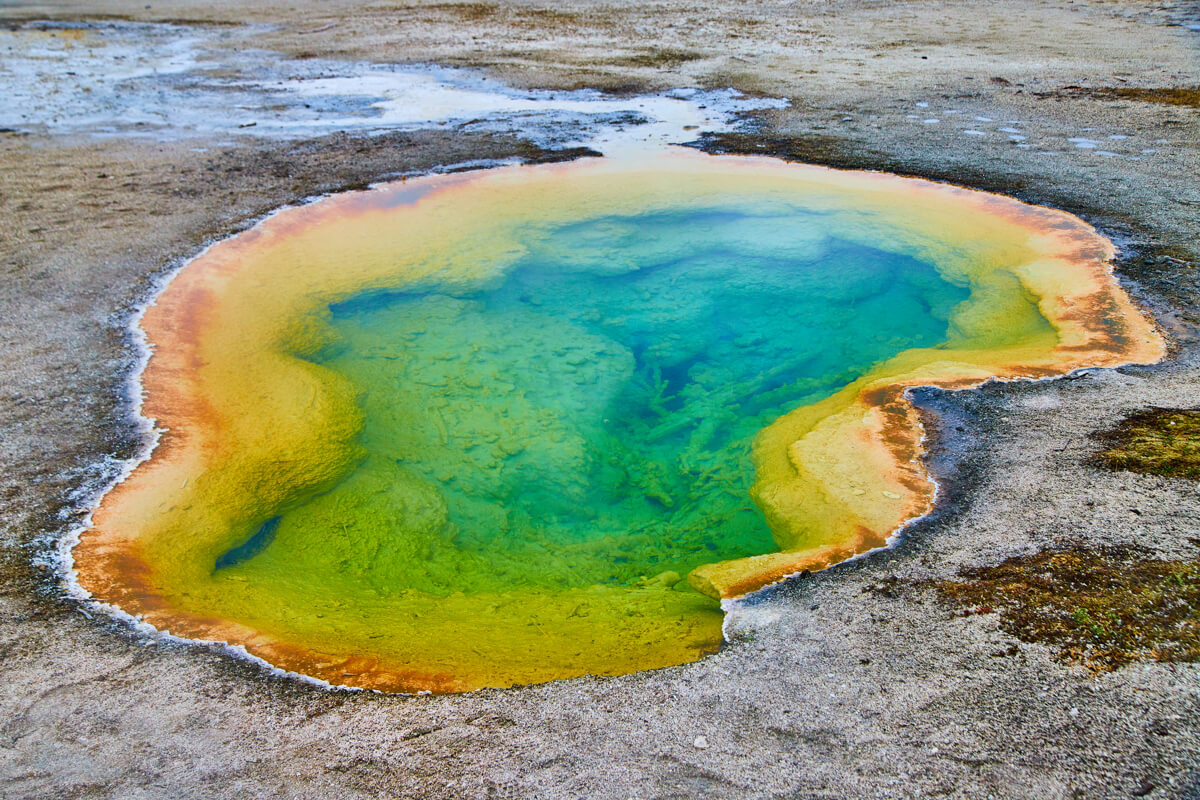
Colorful rings in spring at Biscuit Basin
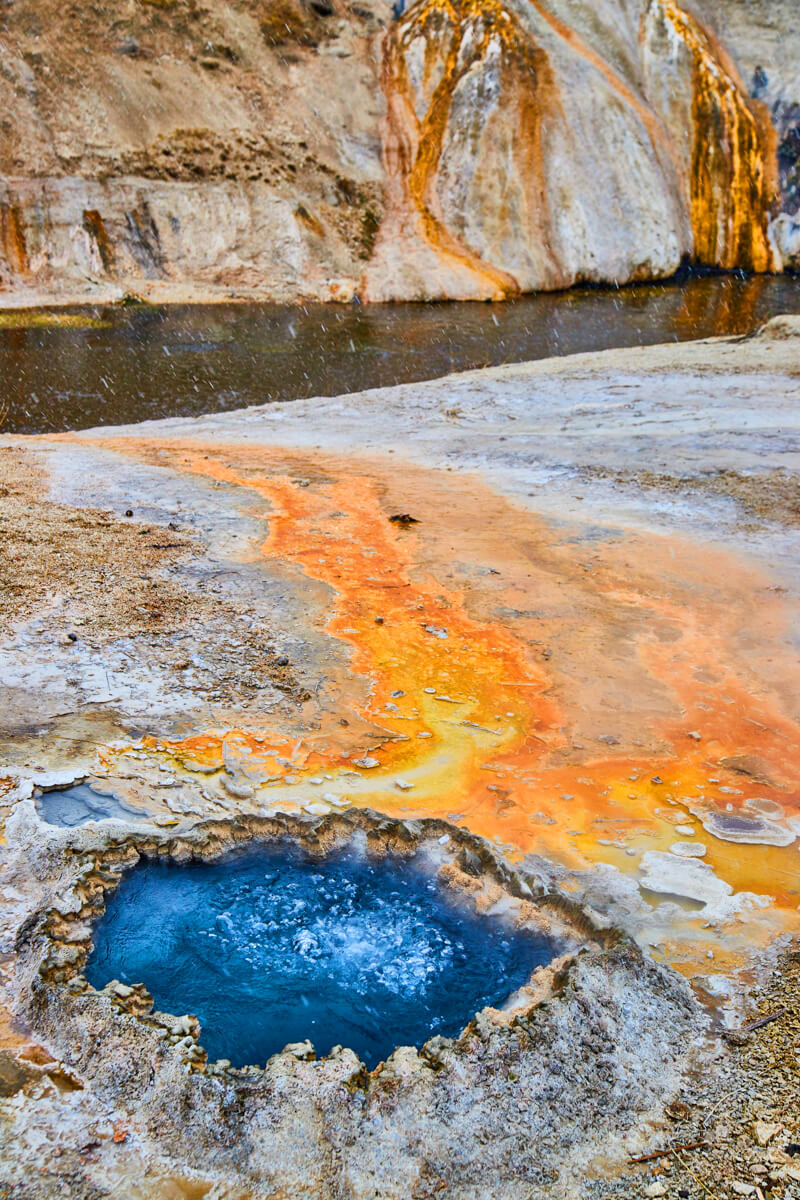
East Chinaman Spring by Old Faithful
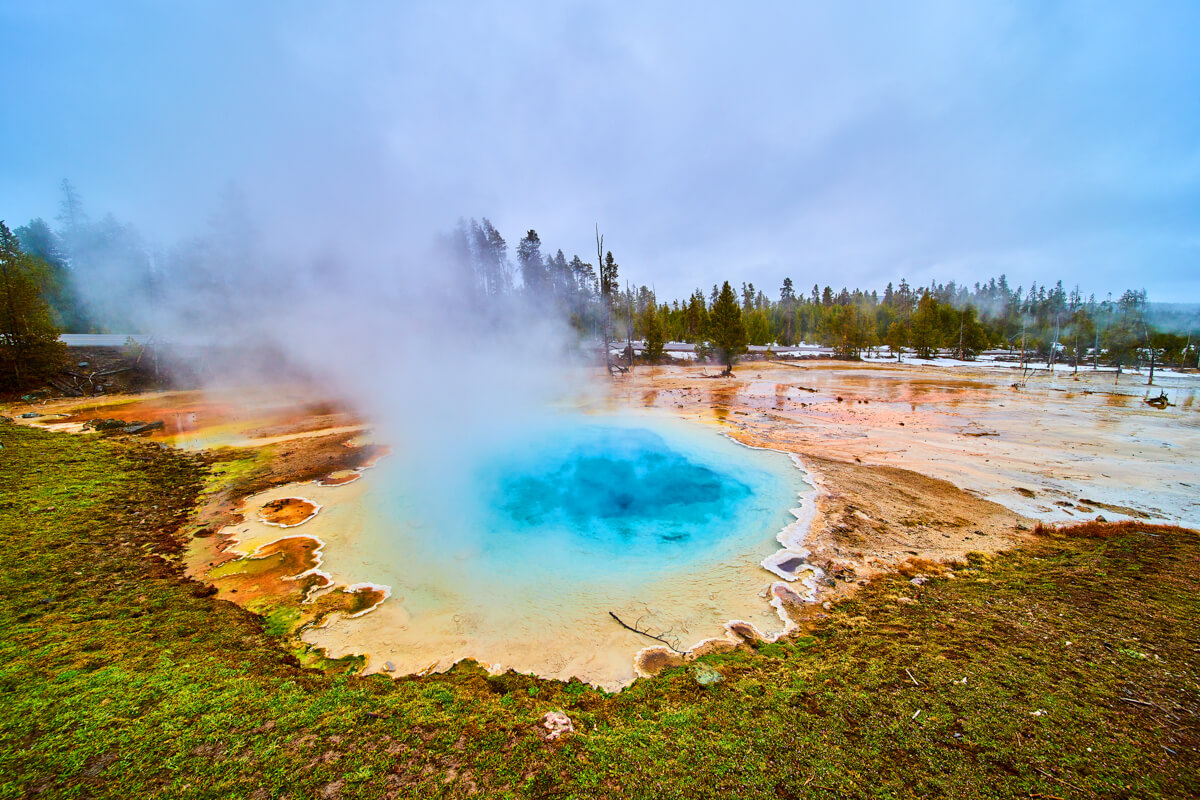
Pools at Fountain Paint Pot
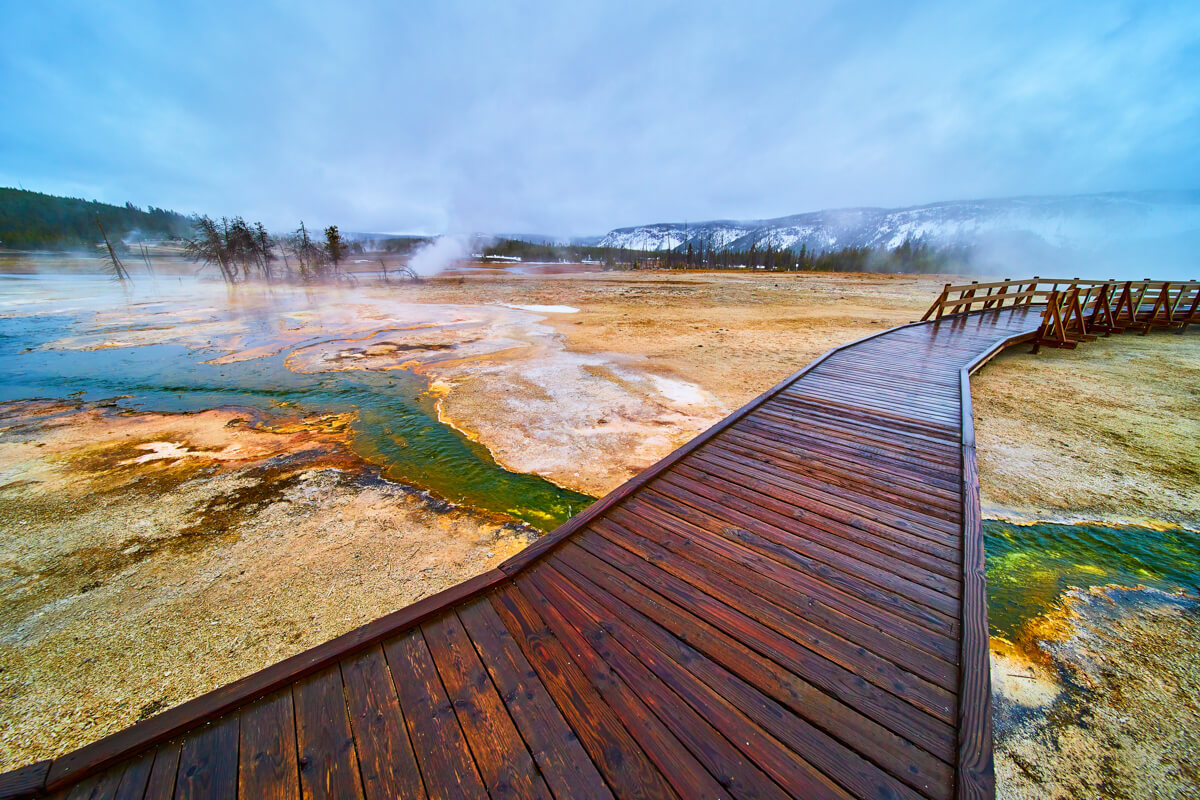
Boardwalk through Biscuit Basin
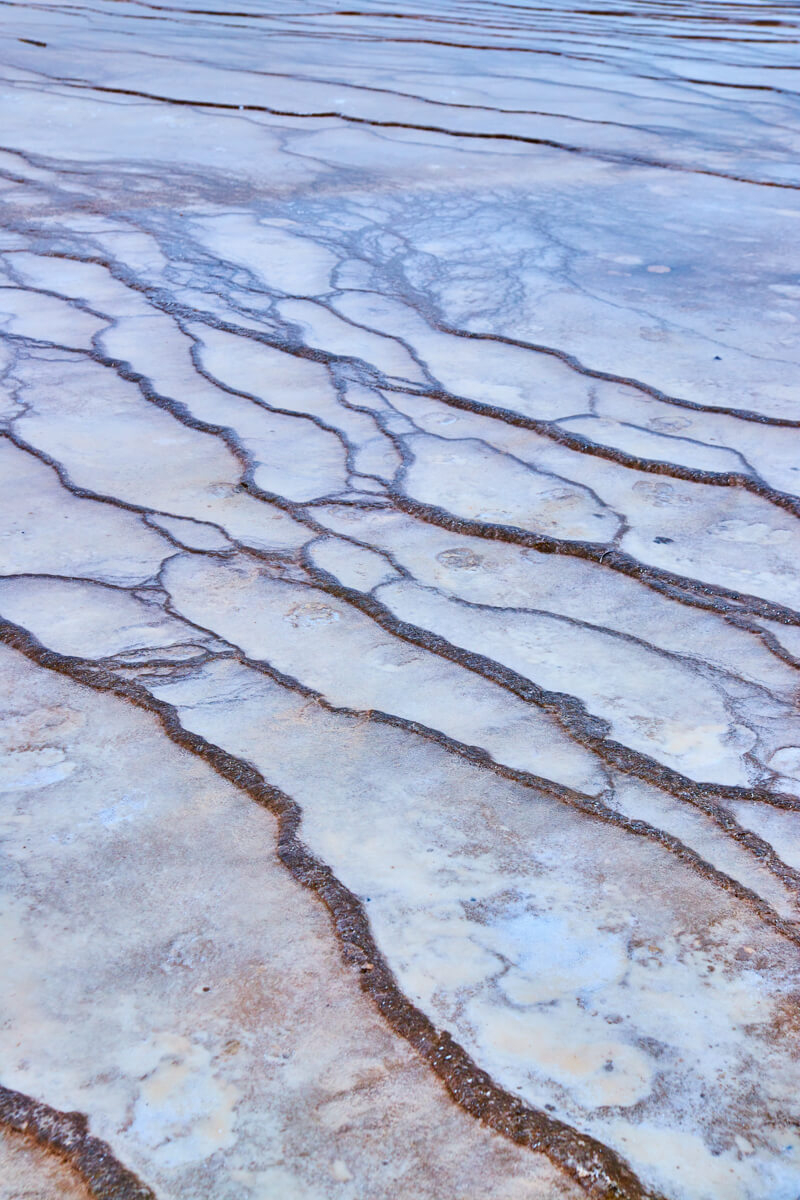
Detail of ground at Grand Prismatic Spring
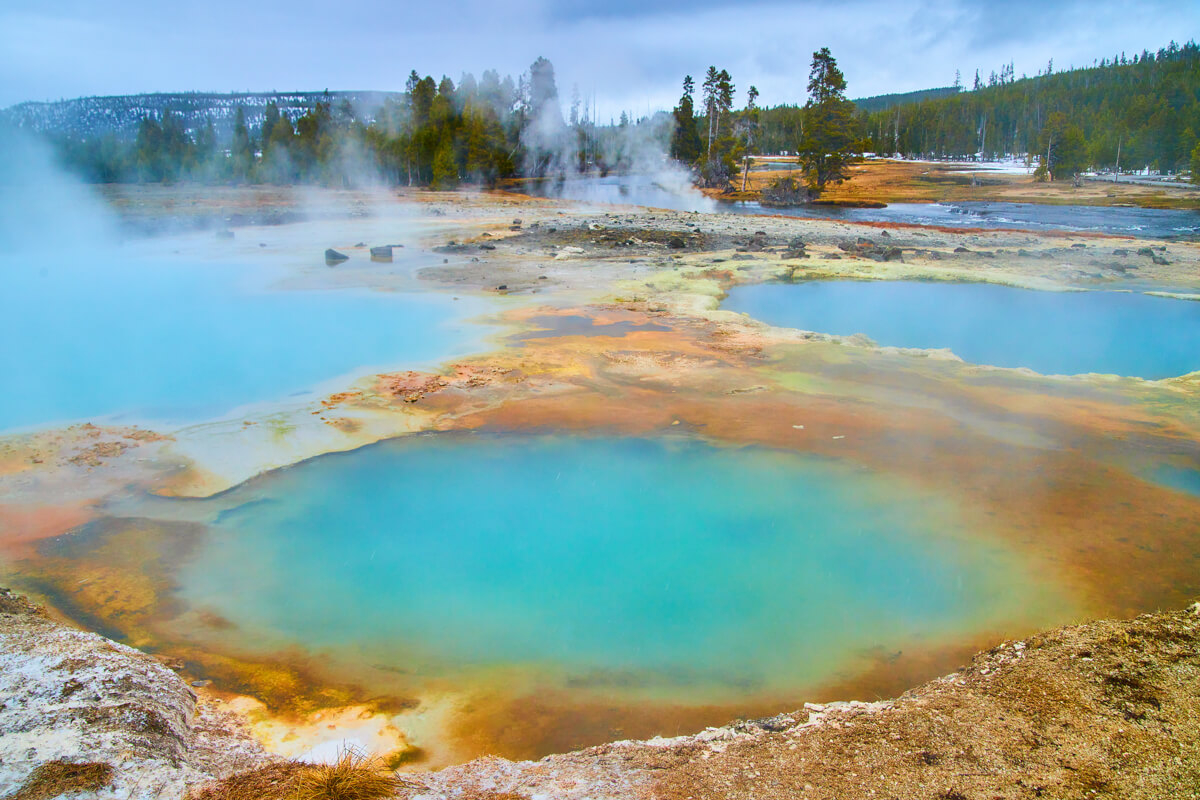
Black Opal Pools at Biscuit Basin
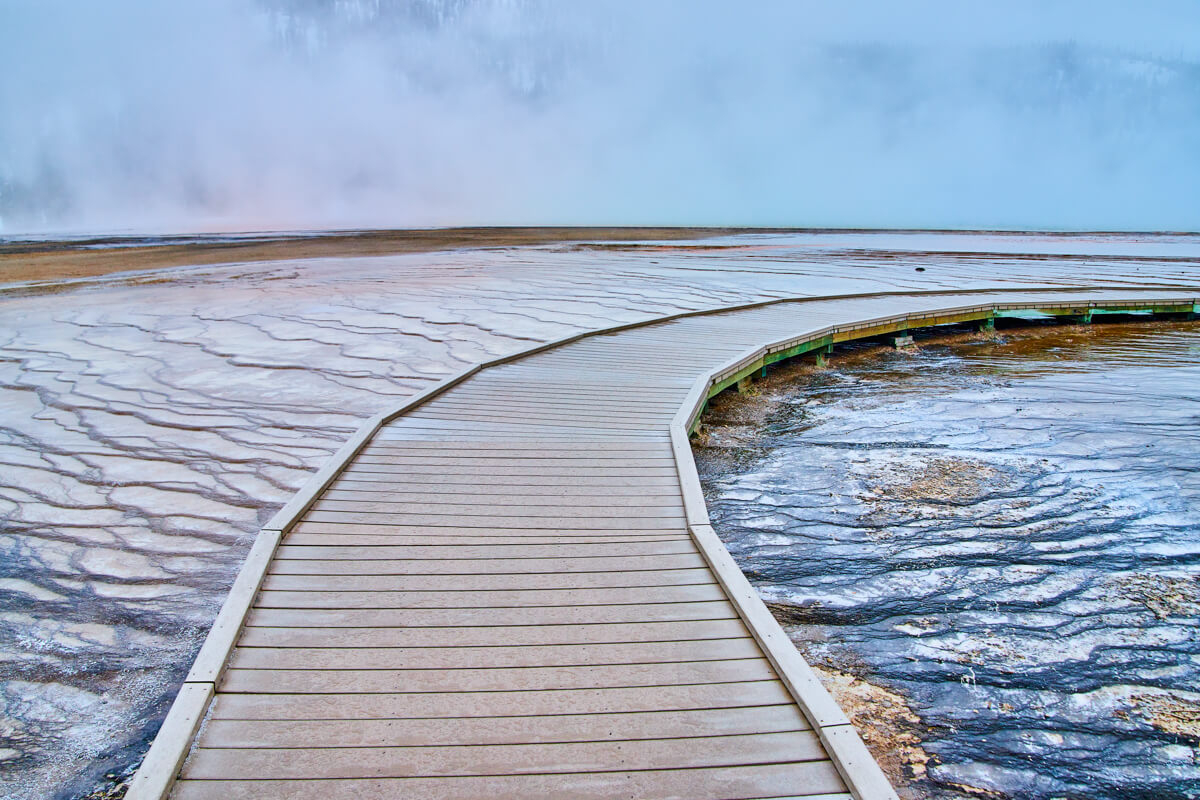
Boardwalk to Grand Prismatic Spring
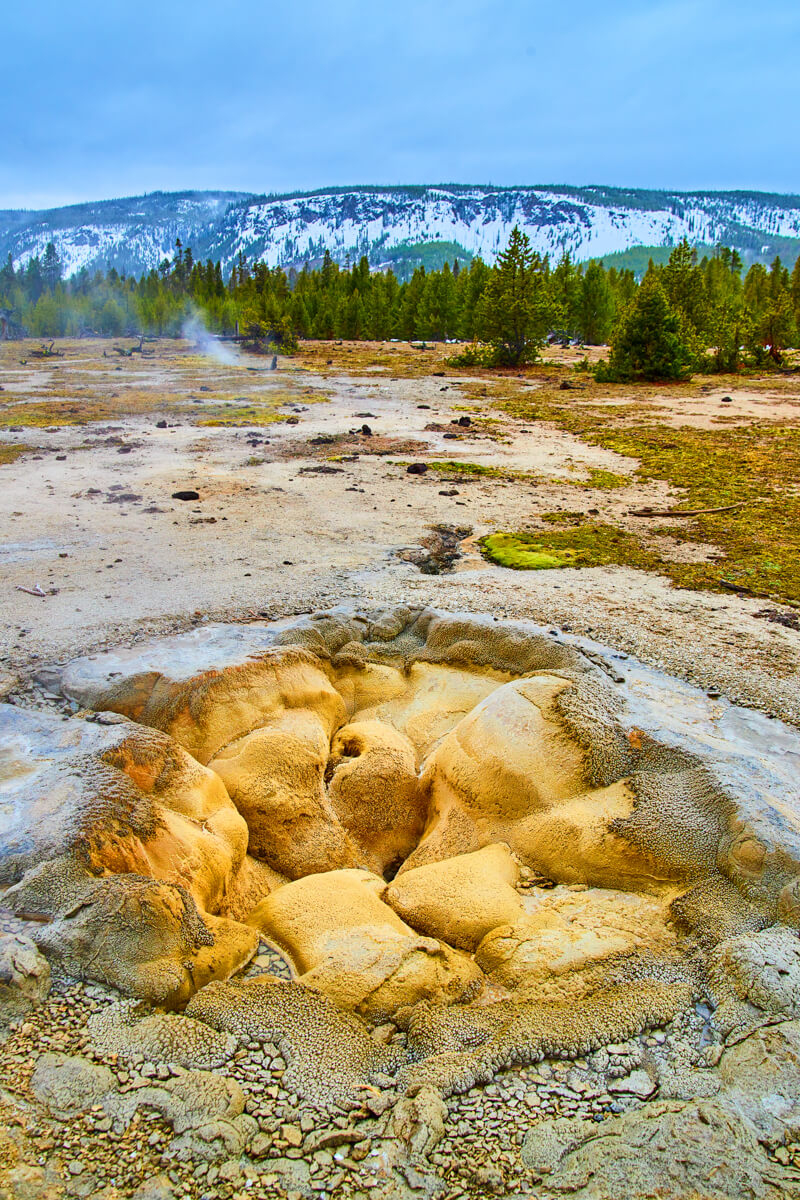
Avoca Spring at Biscuit Basin
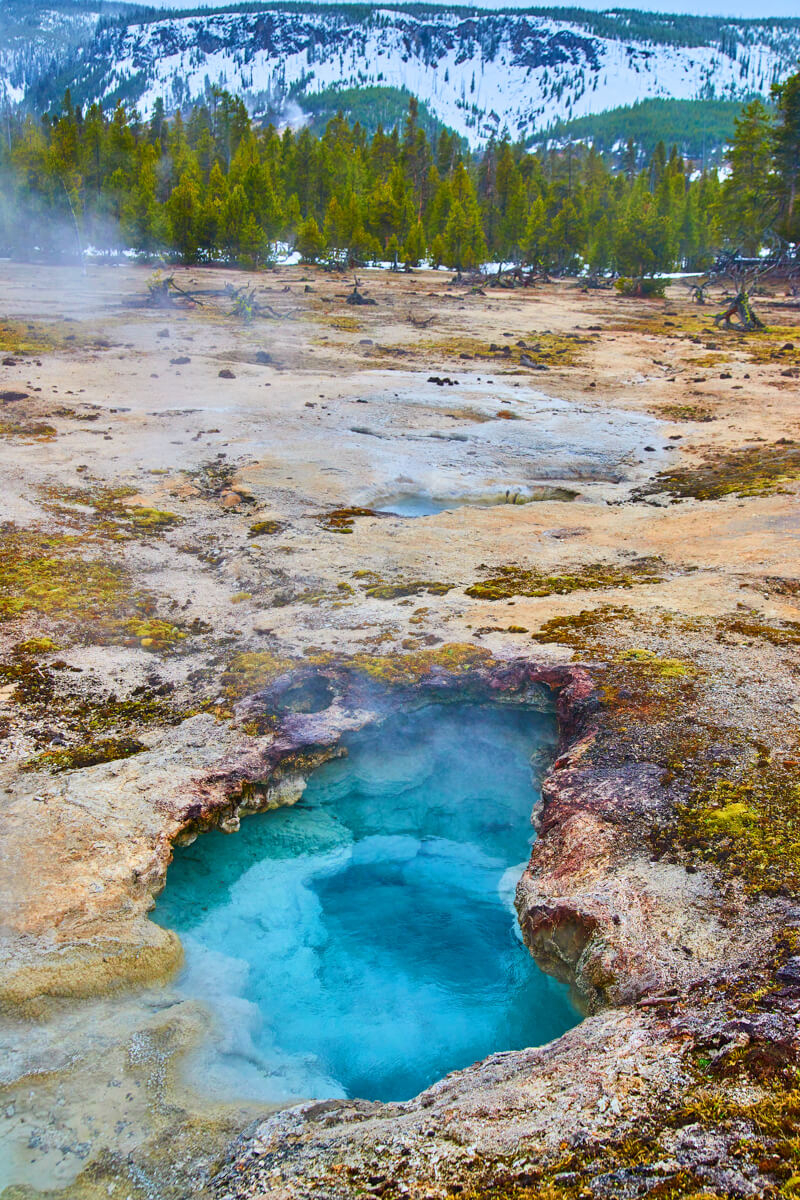
Stunning blue spring at Biscuit Basin
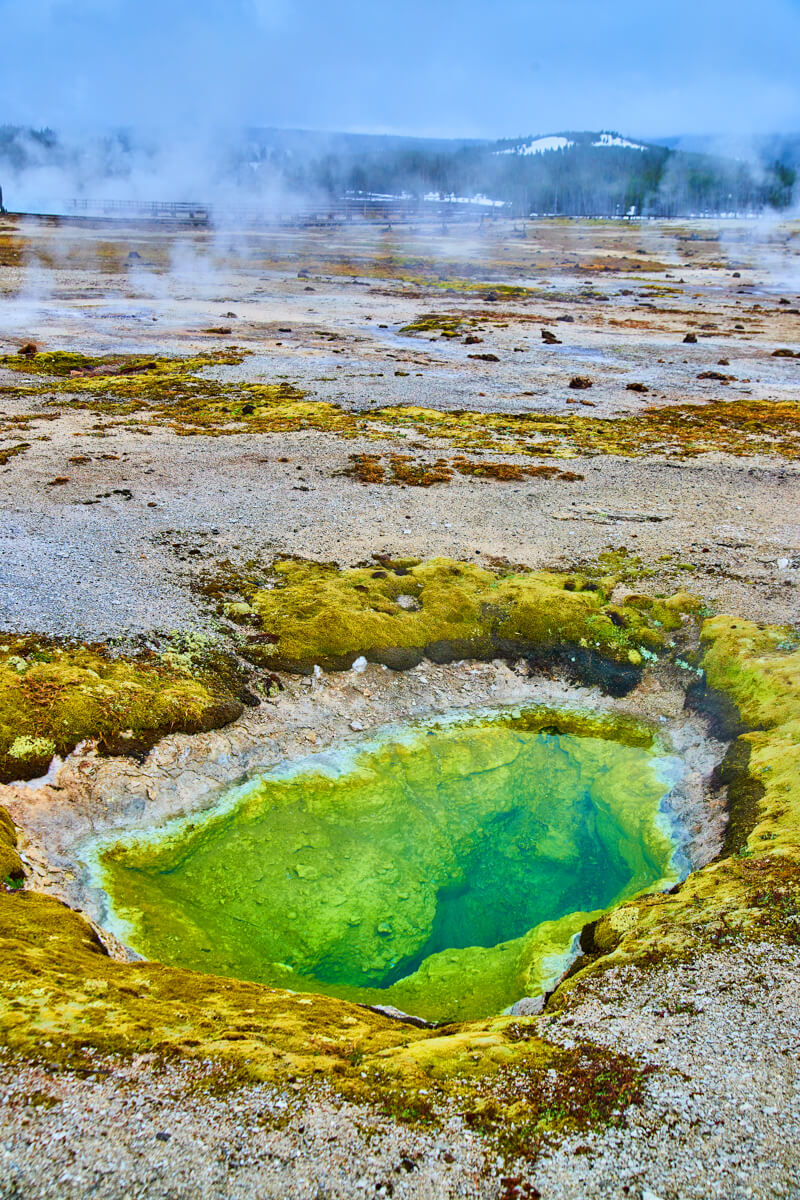
Vibrant green and mossy pool at Biscuit Basin
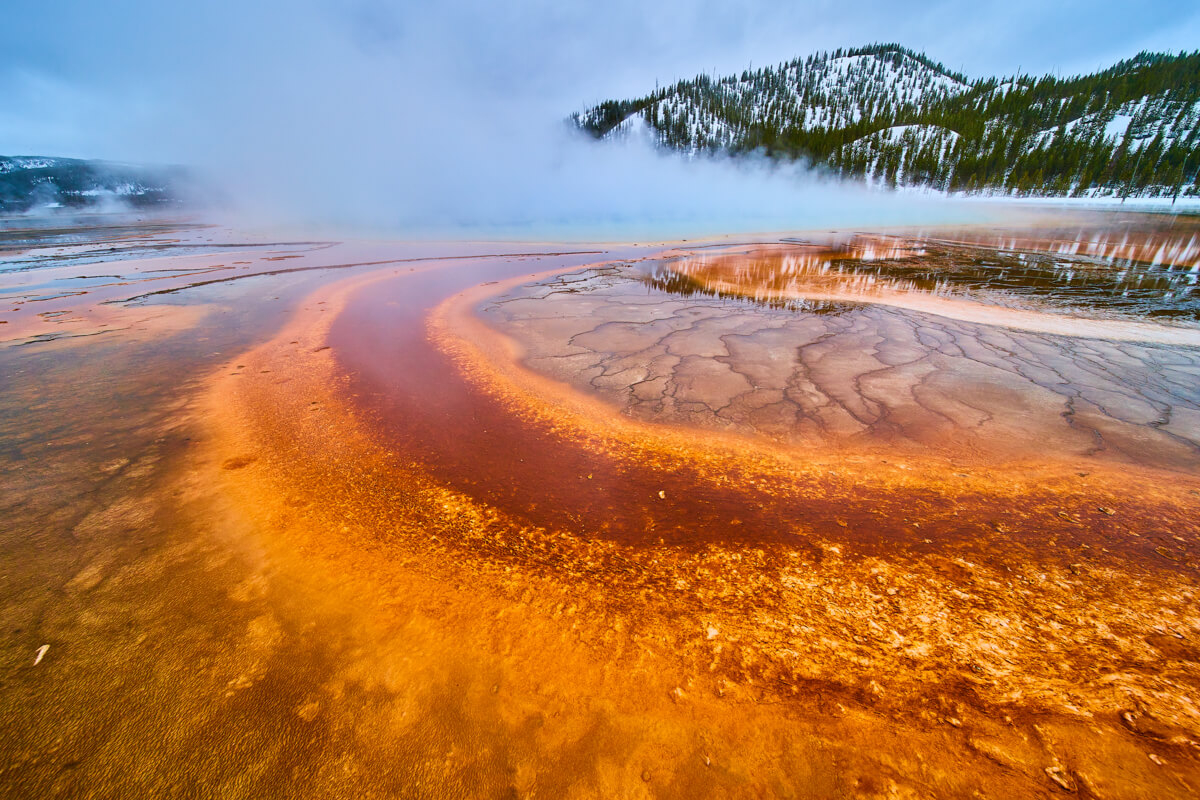
Grand Prismatic Spring steaming in spring
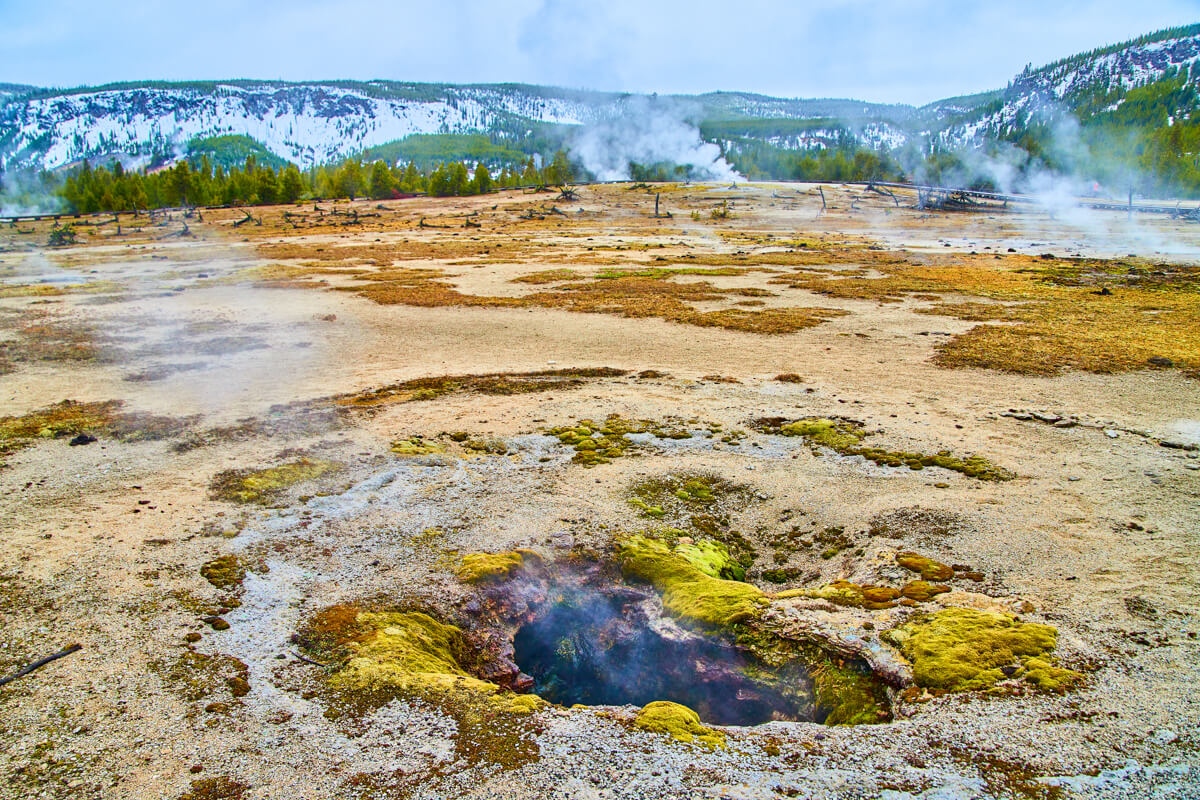
Steamy nostril of the earth at Biscuit Basin
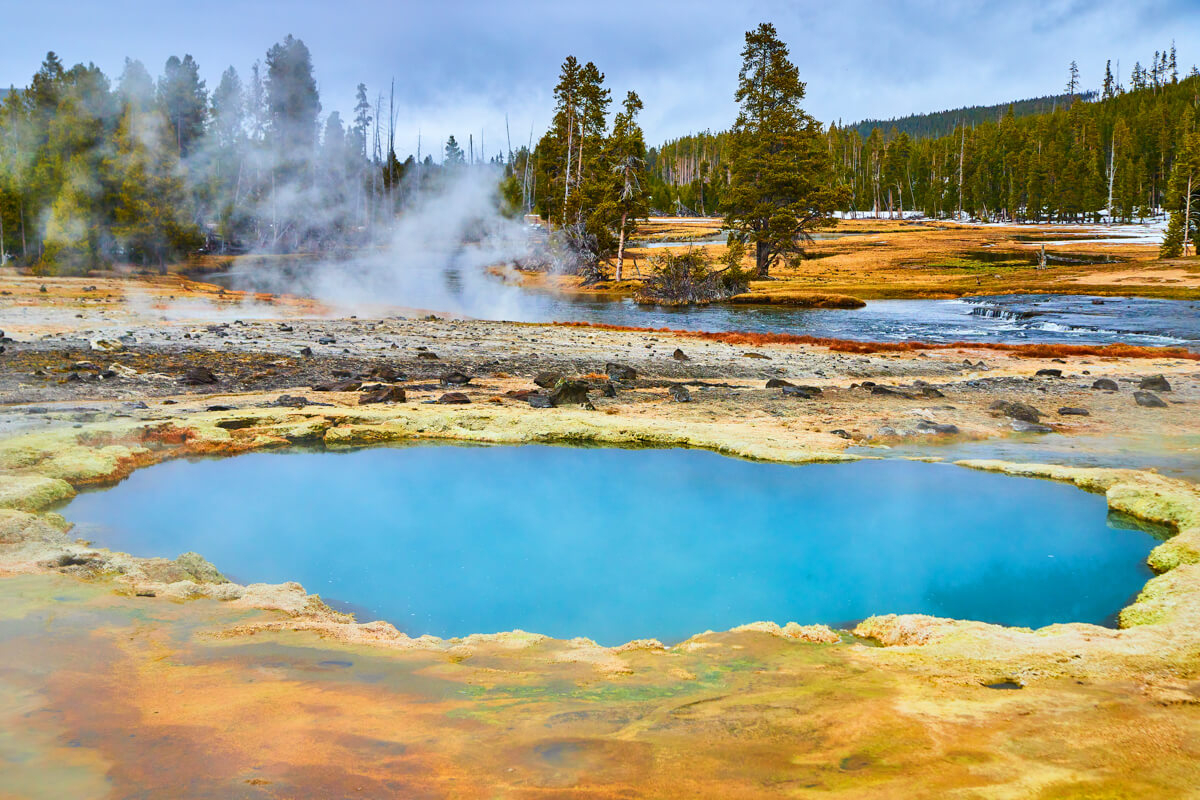
Black Diamond Pool at Biscuit Basin
Conclusion
Overall, I would still recommend Yellowstone in summer for your FIRST time, but if you’ve “been there and done that”, it feels like an entirely different experience in winter / spring months.
I’ll leave you with some photos of bison (along with some other random favorite shots taken around the park), as Yellowstone is known for having them everywhere, and I MEAN everywhere. Expect travel delays literally every time you are driving through, with bison not caring at all about cars on the road and just hogging it all to themselves. It SHOULD go without saying but I’ll say it anyway: be very careful and keep your distance from bison. They seem very calm and peaceful but can attack on a moment's notice. You have probably heard about tourists getting mauled, it is no joke.
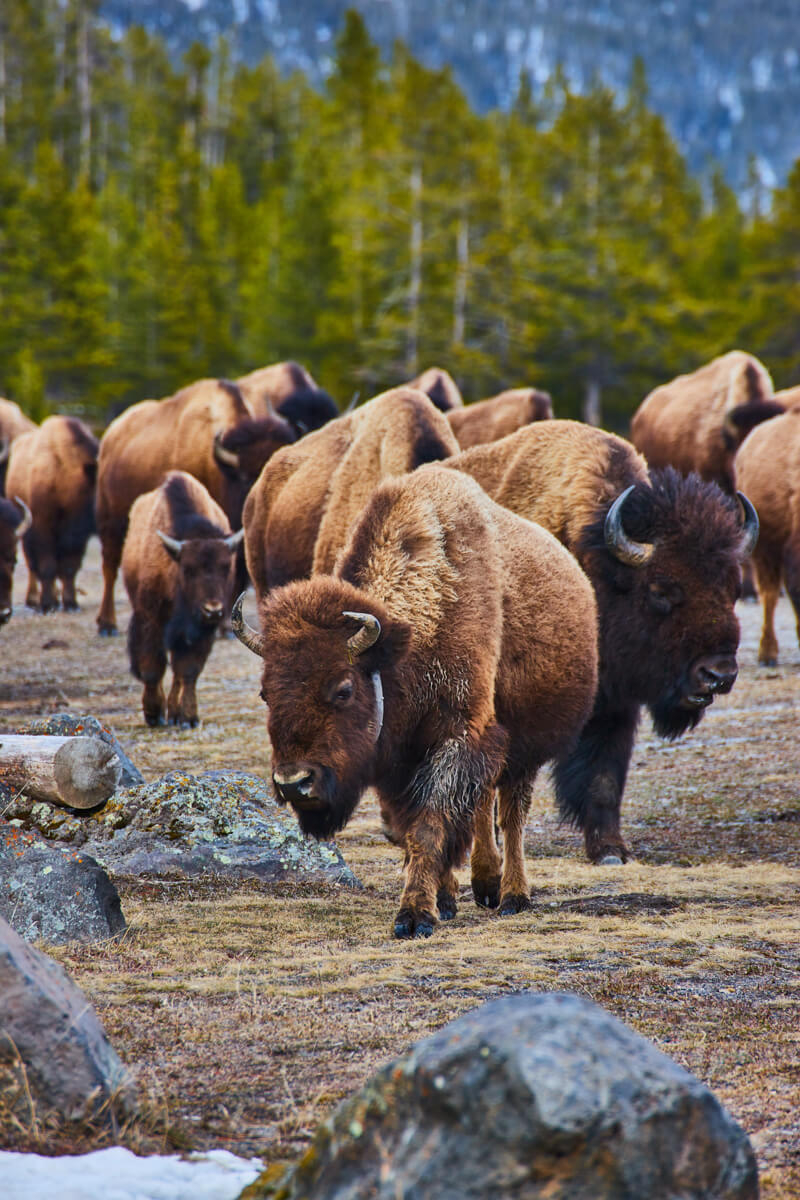
Bison herd by mountains
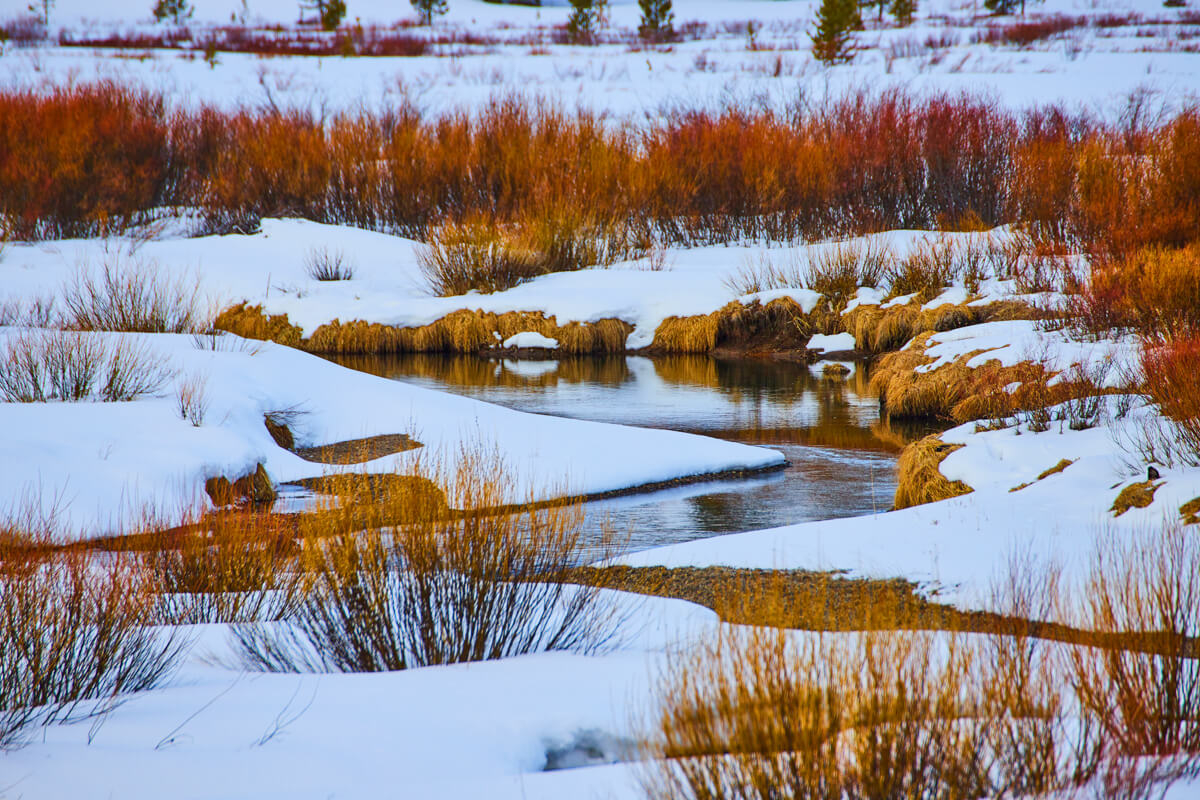
Beautiful snowy creek along road
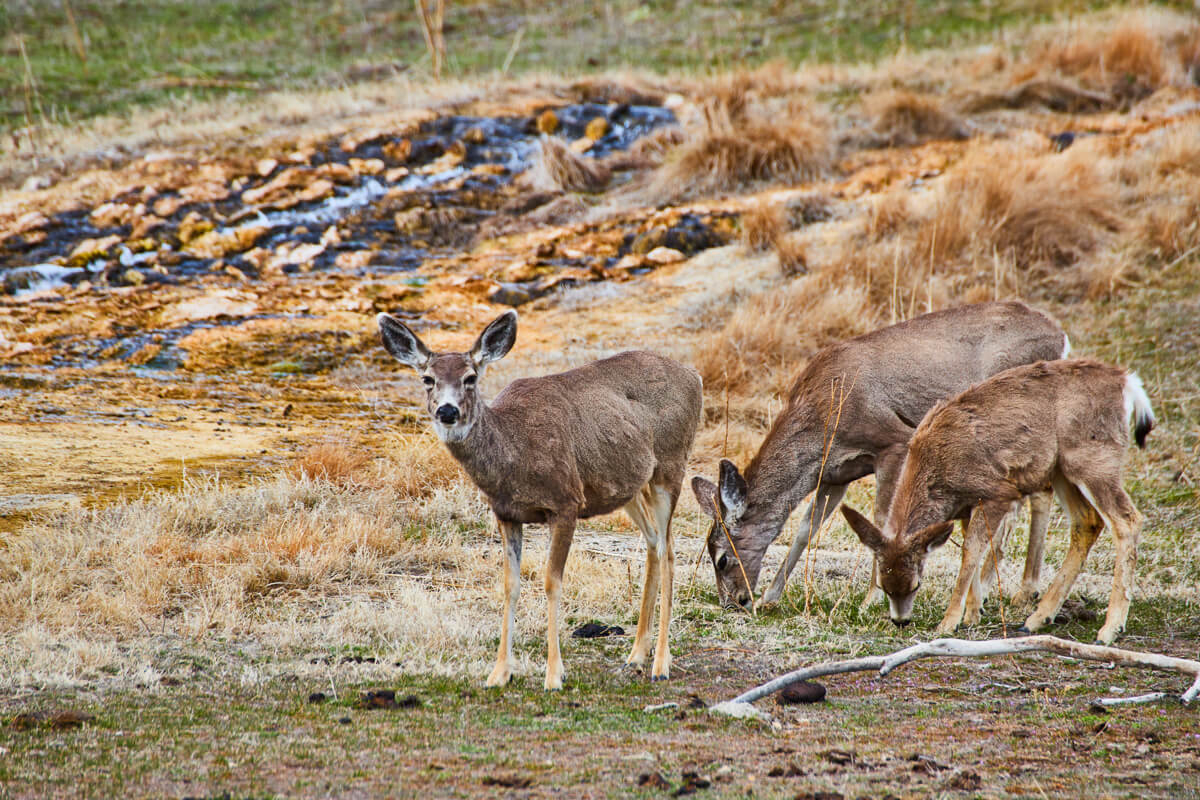
Deer spotted by hot springs
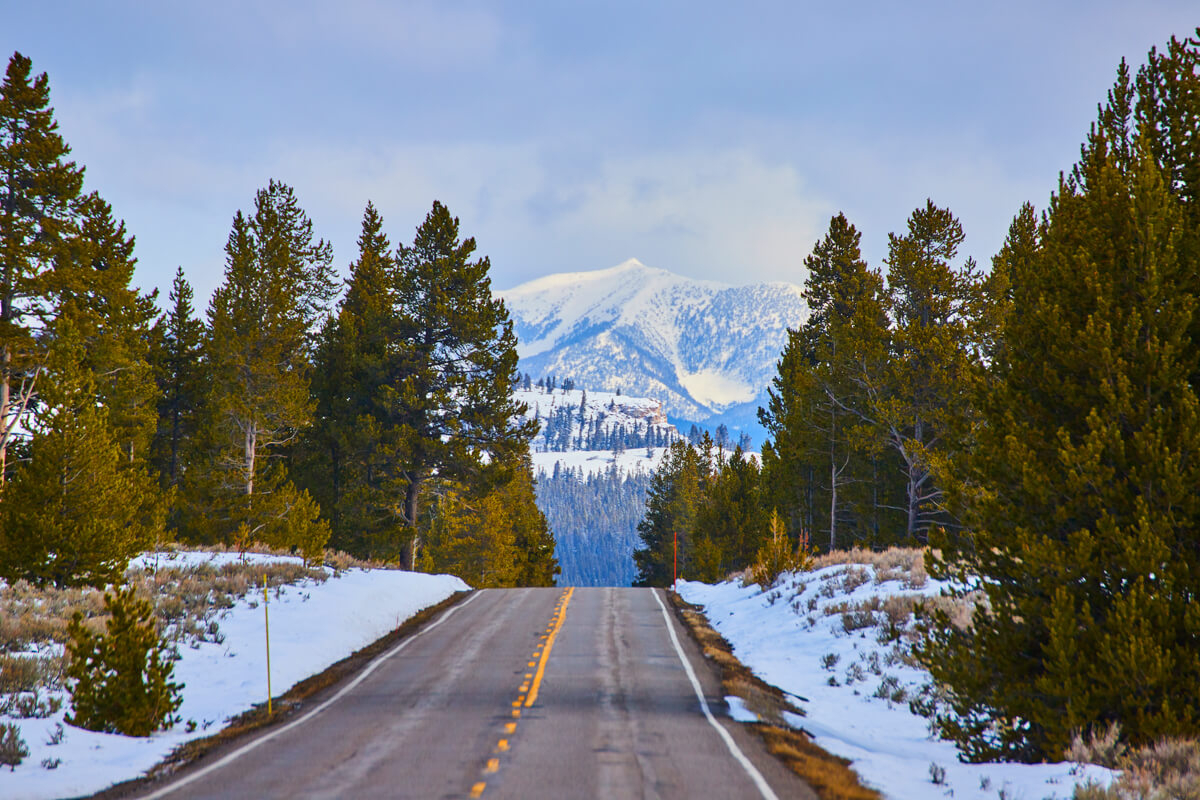
Mountains in sight on the road
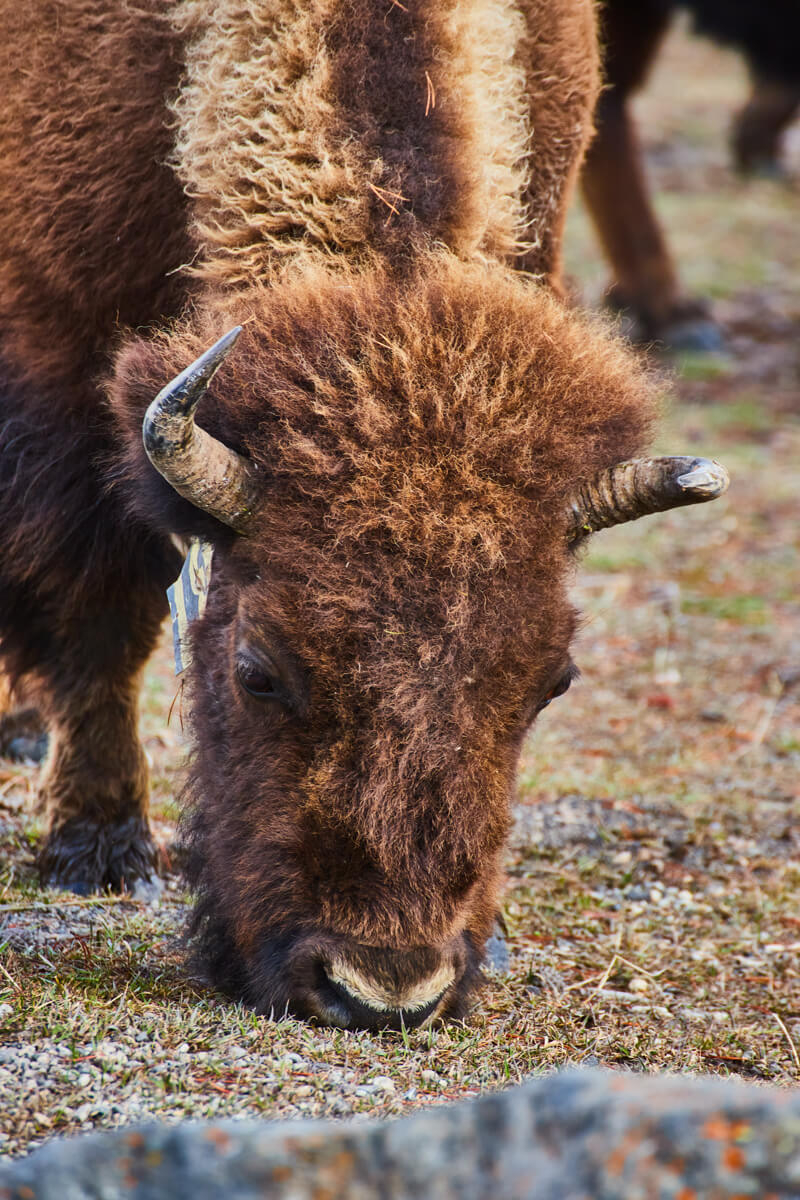
Detail of young bison
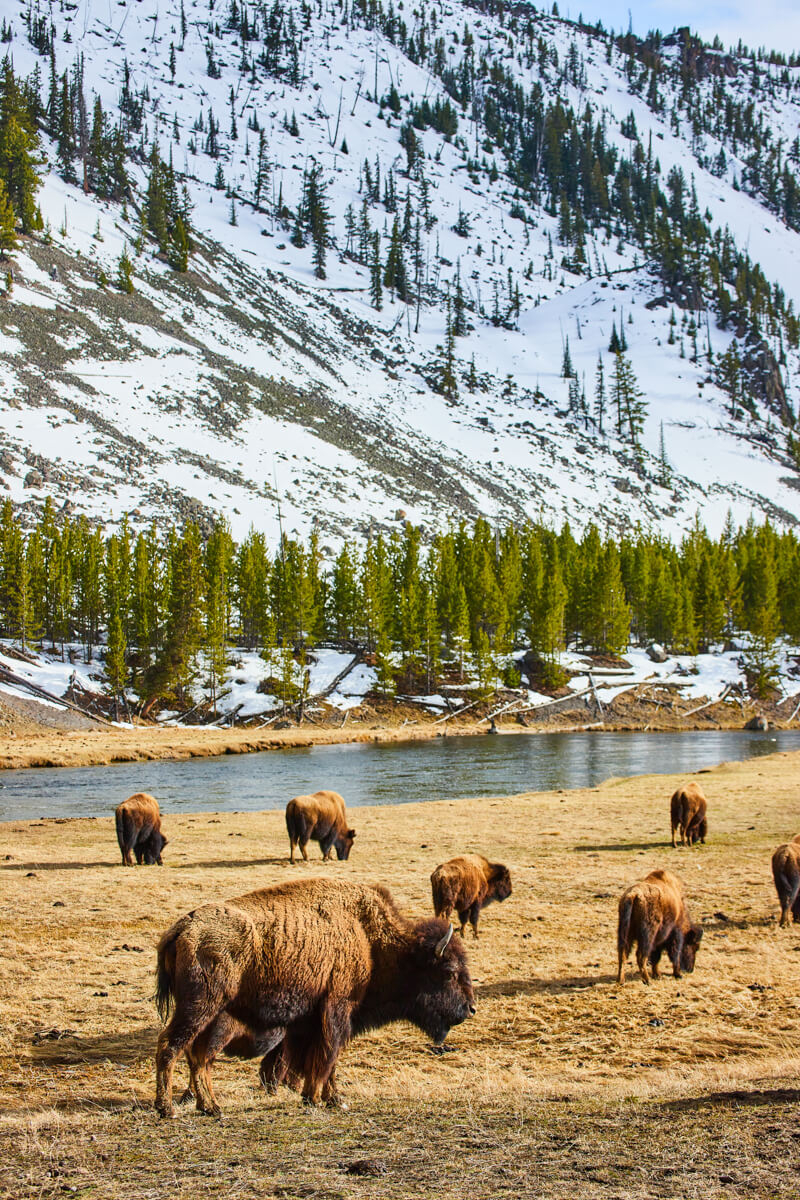
Bison along snowy mountains and river
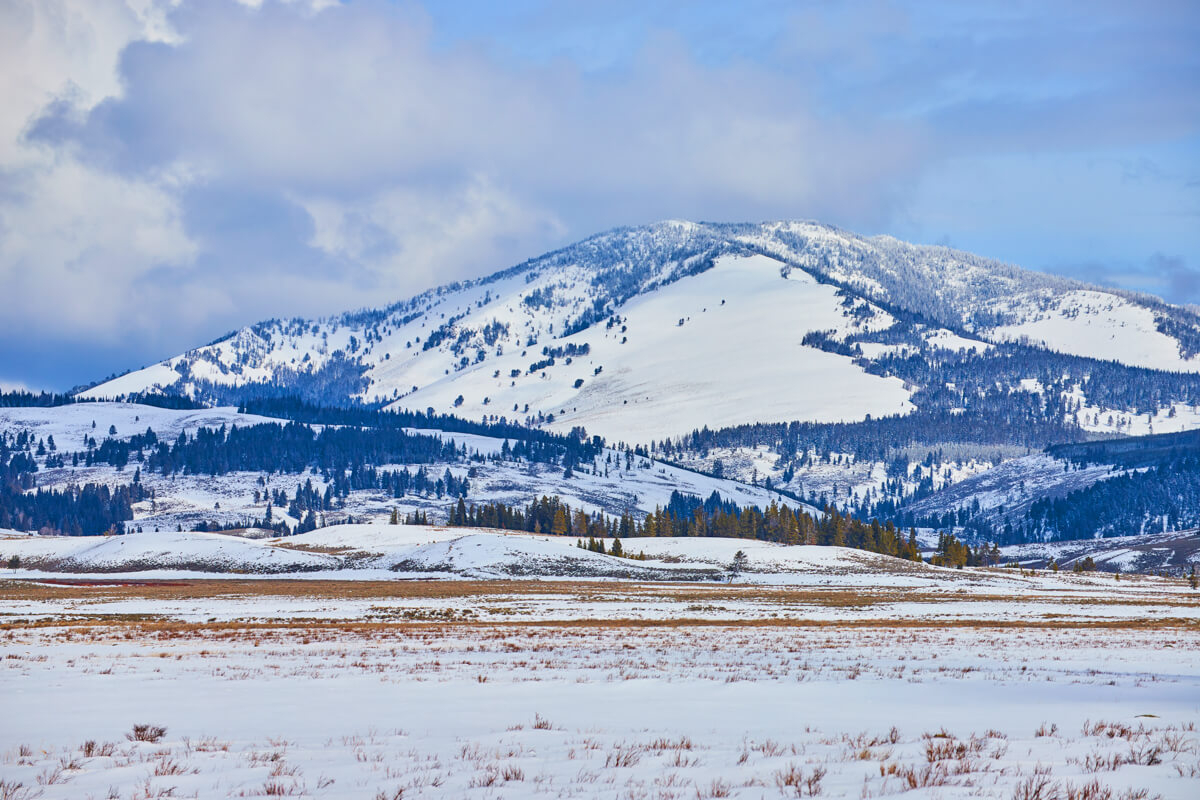
Stunning snowy mountains near north entrance
Recent Blogs
Four Seasons from Above in Downtown Fort Wayne, Indiana
Unlocking the Power of QR Codes

About the Author
Founder and visual artist, specializing in all aspects of a businesses presence from imagery and video to graphics and web. A graduate of IPFW with a Bachelor in Fine Arts, Concentration Photography as well as an Associates Degree in Business. His personal photography works are focused on landscape, travel, and aerial photography.





